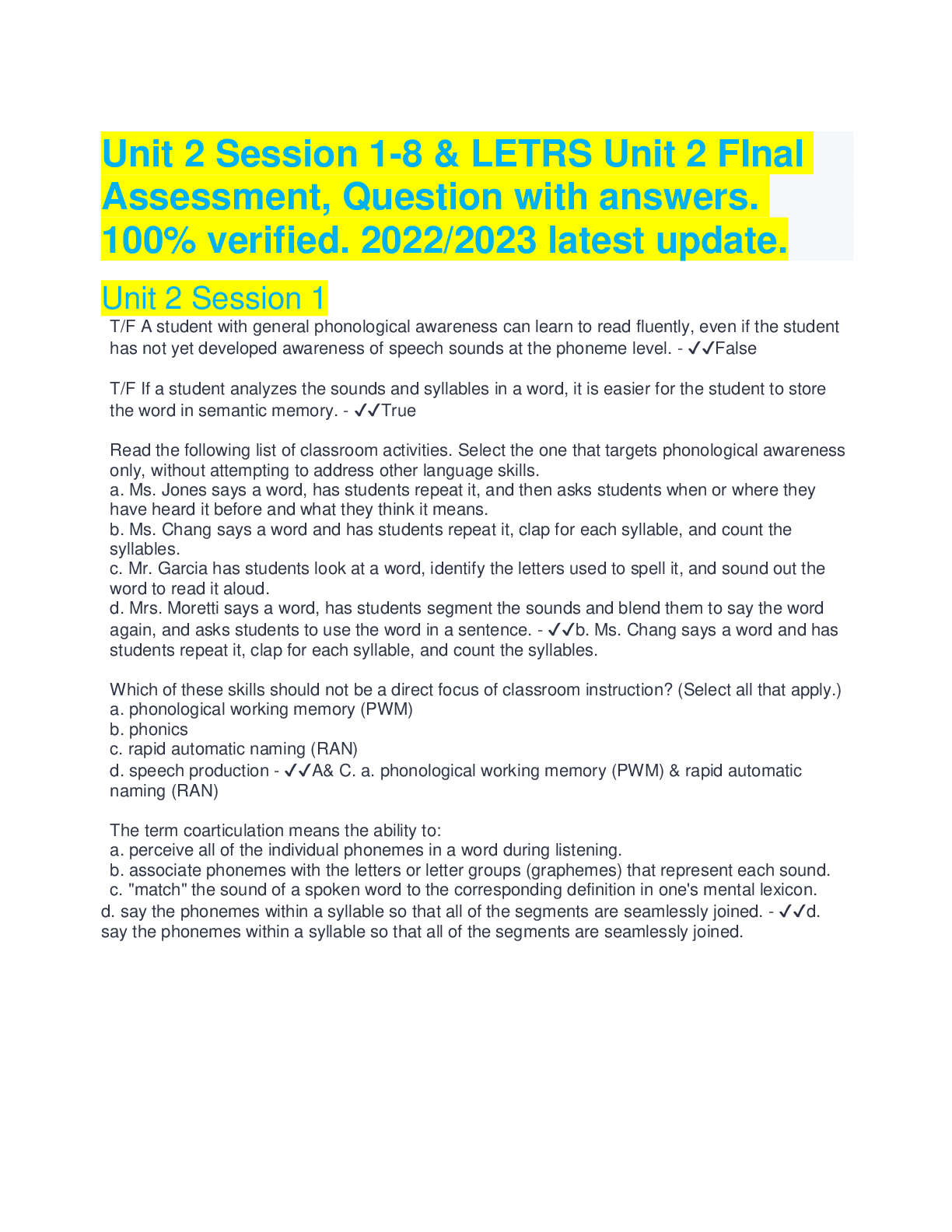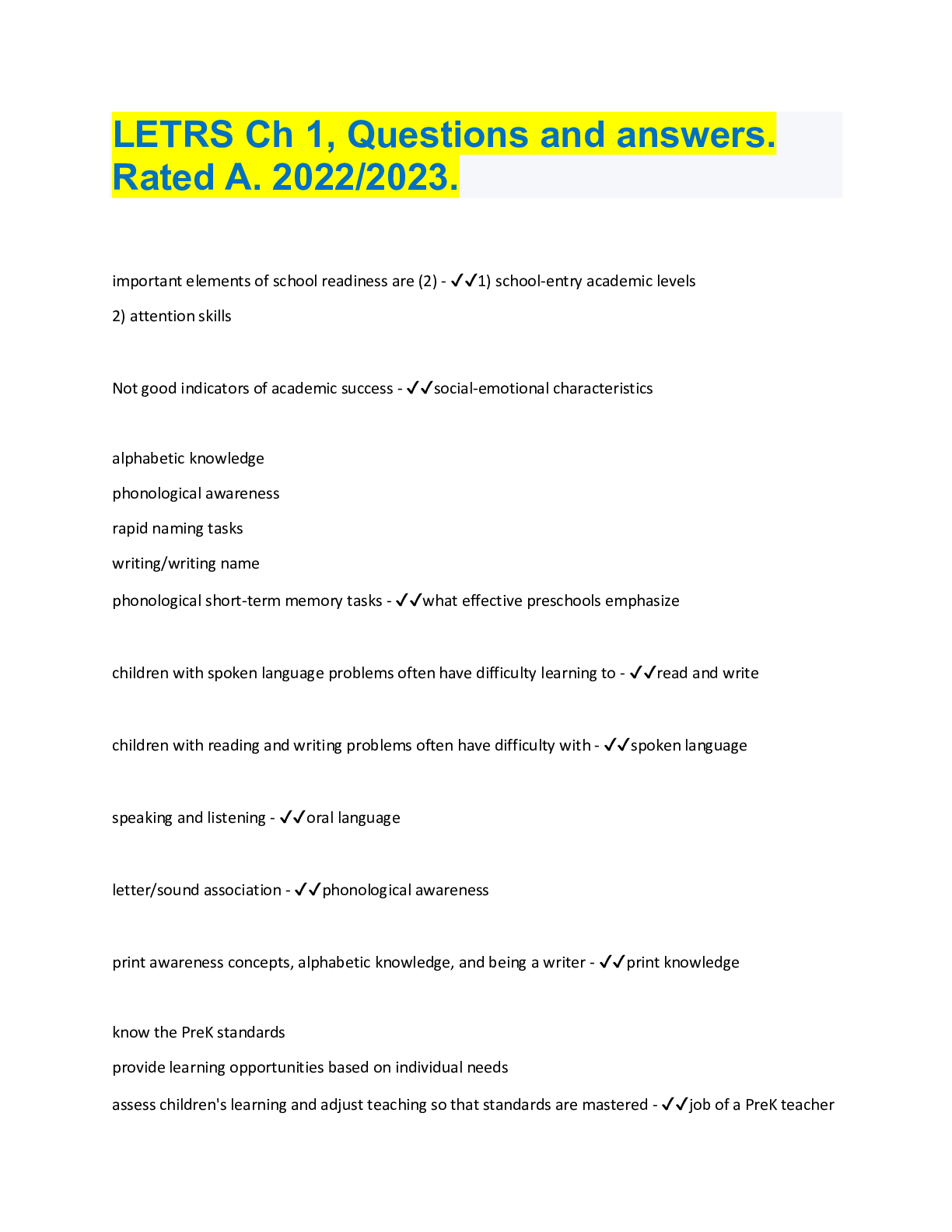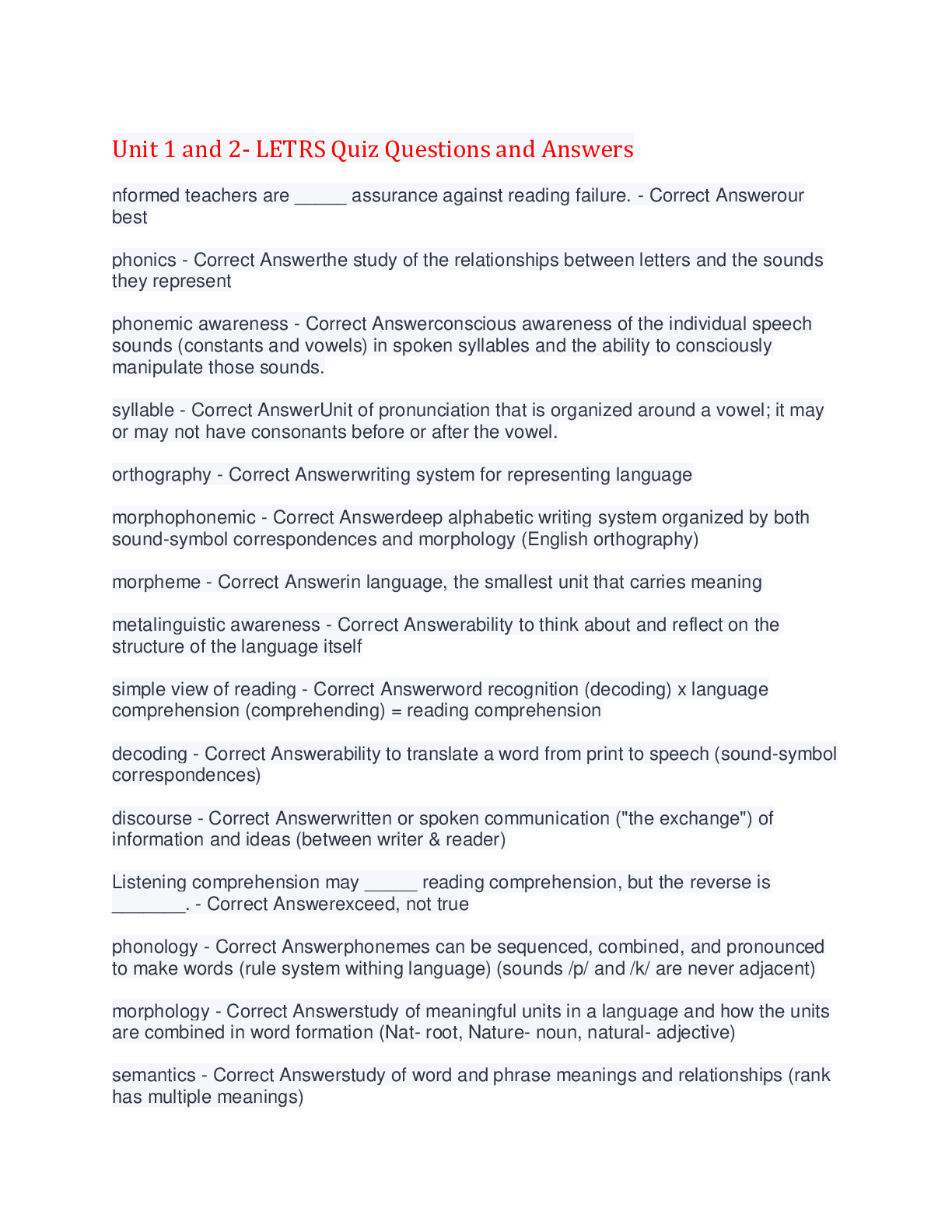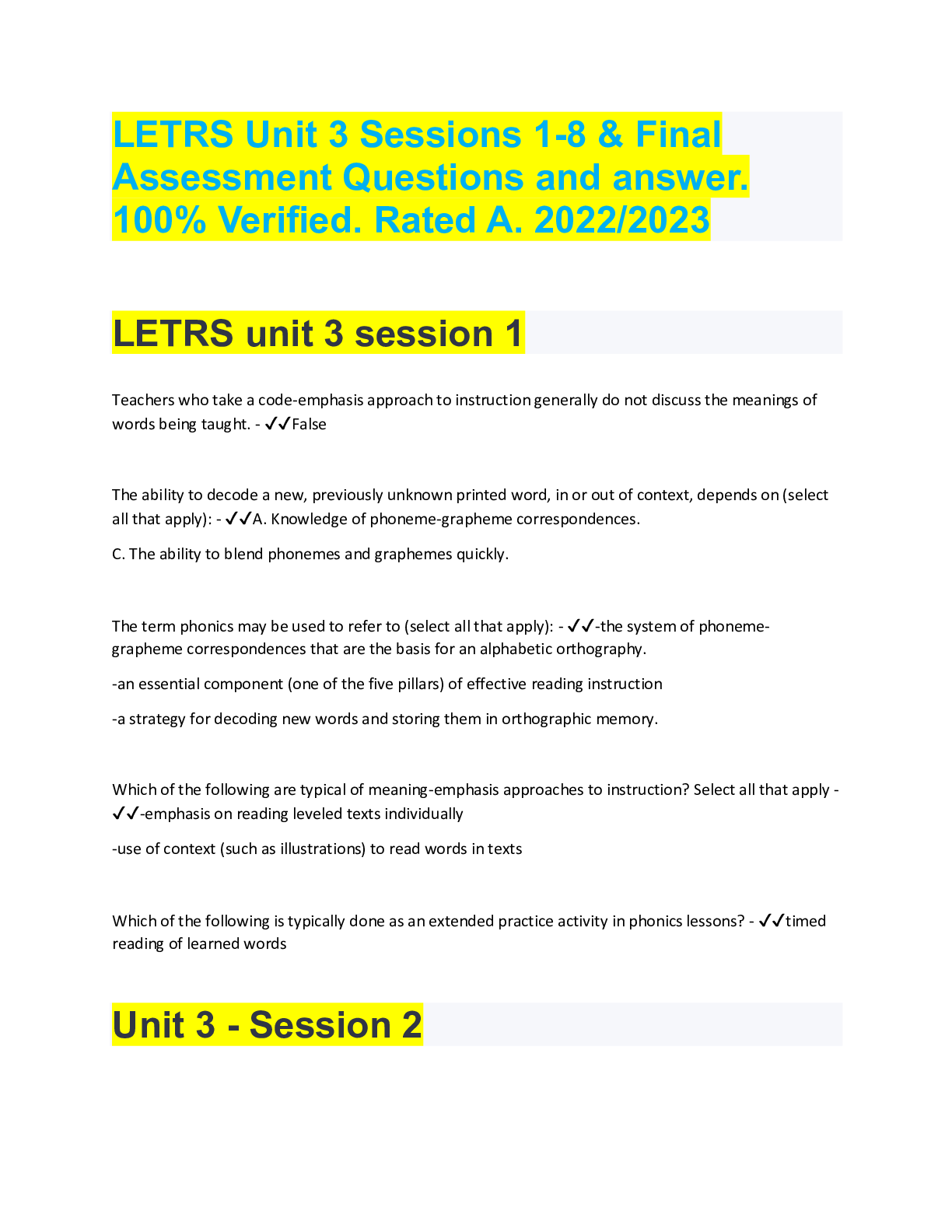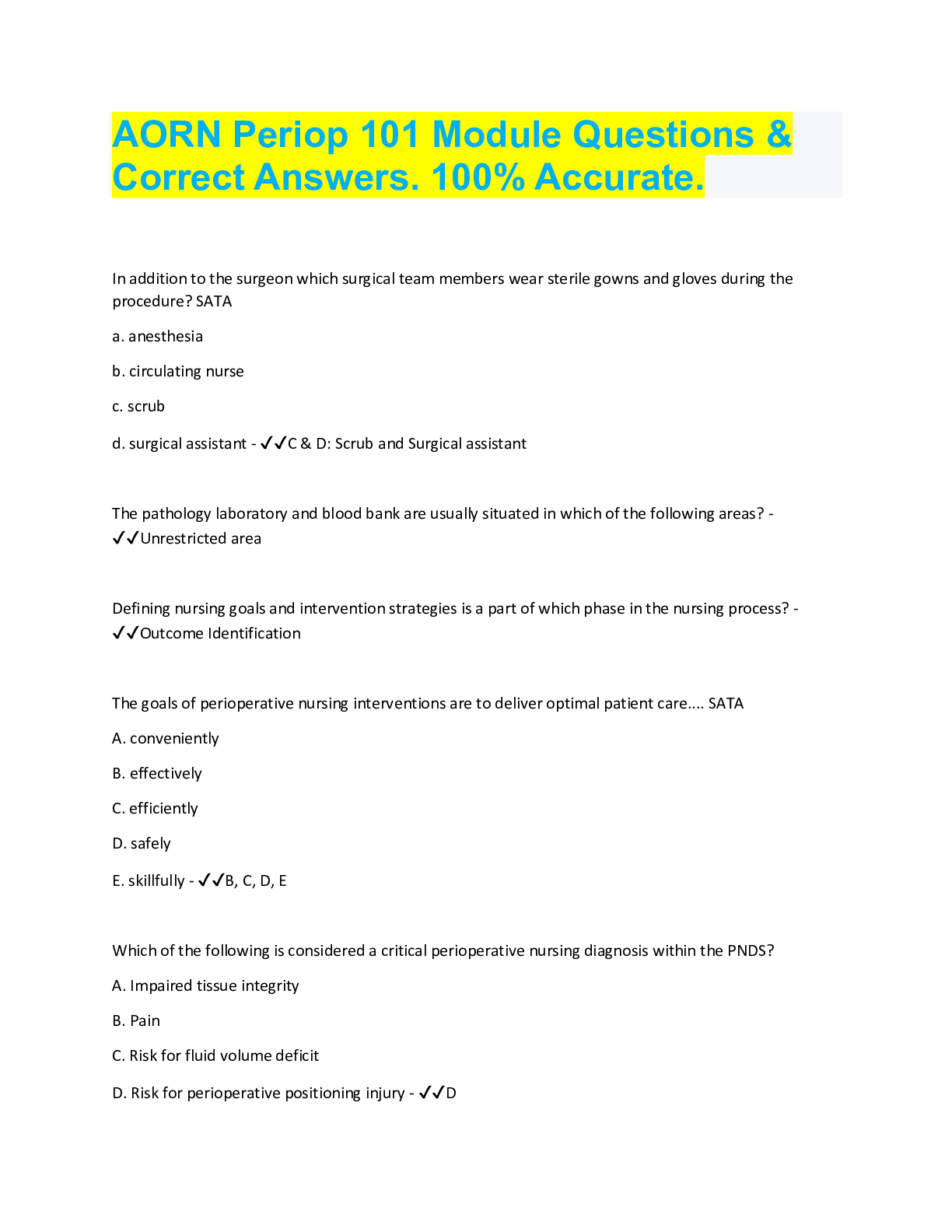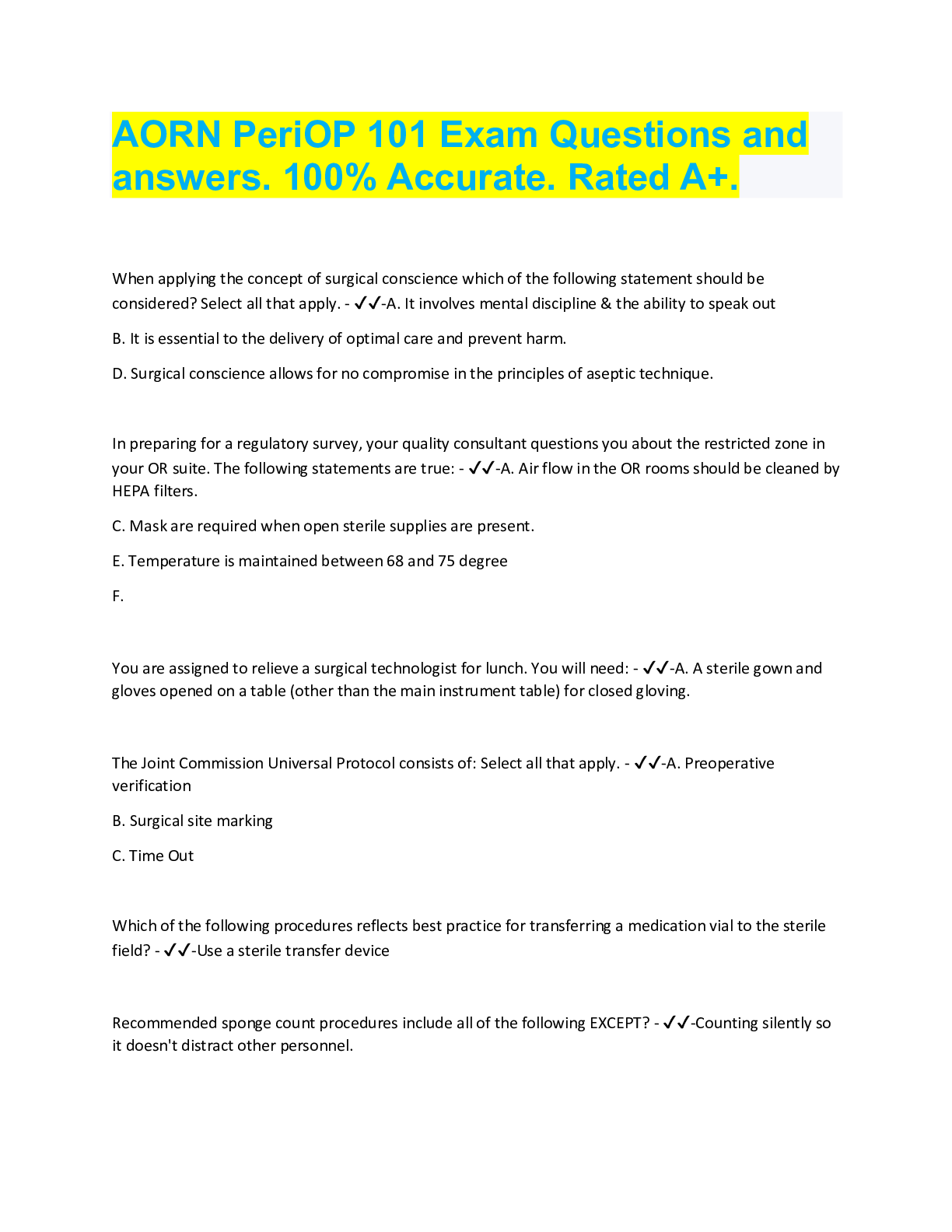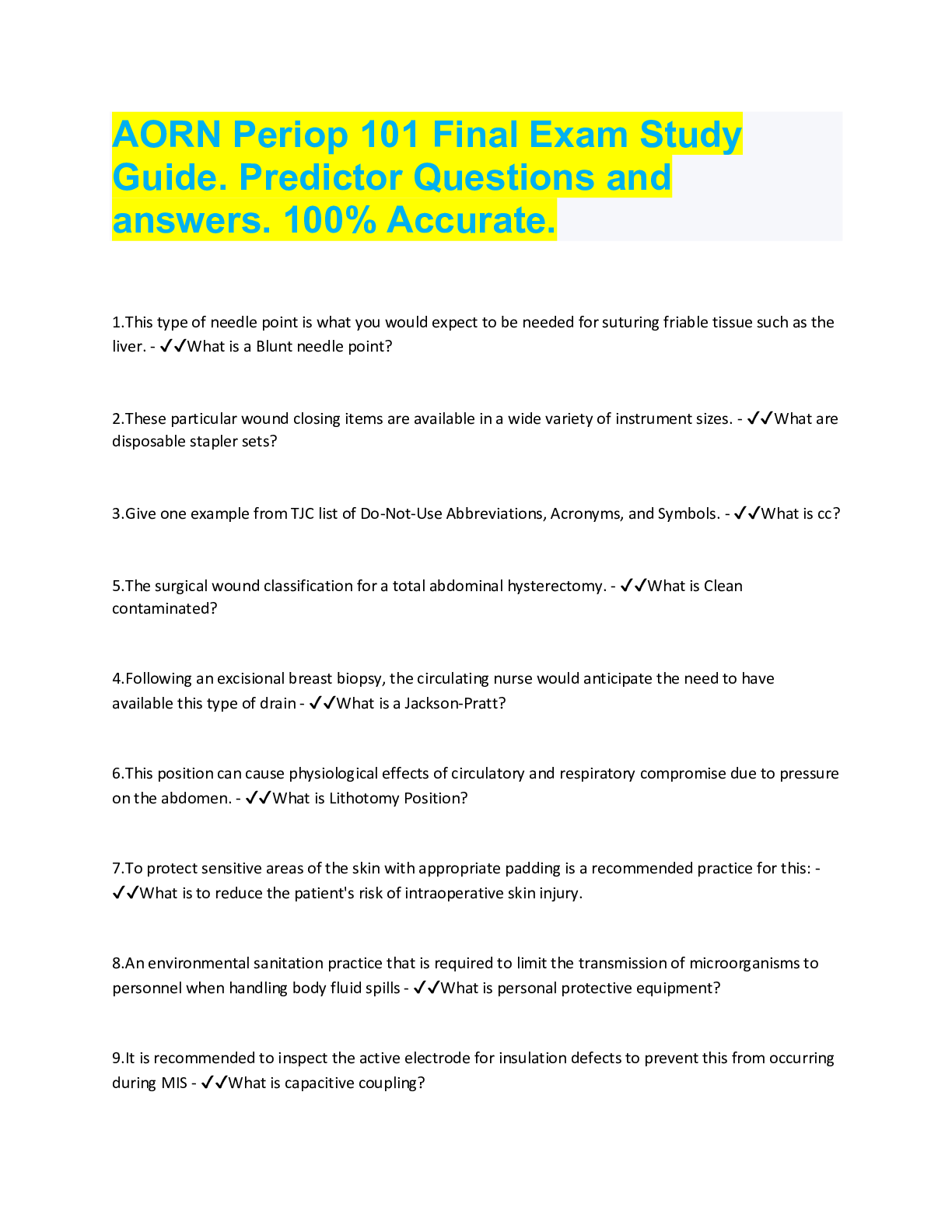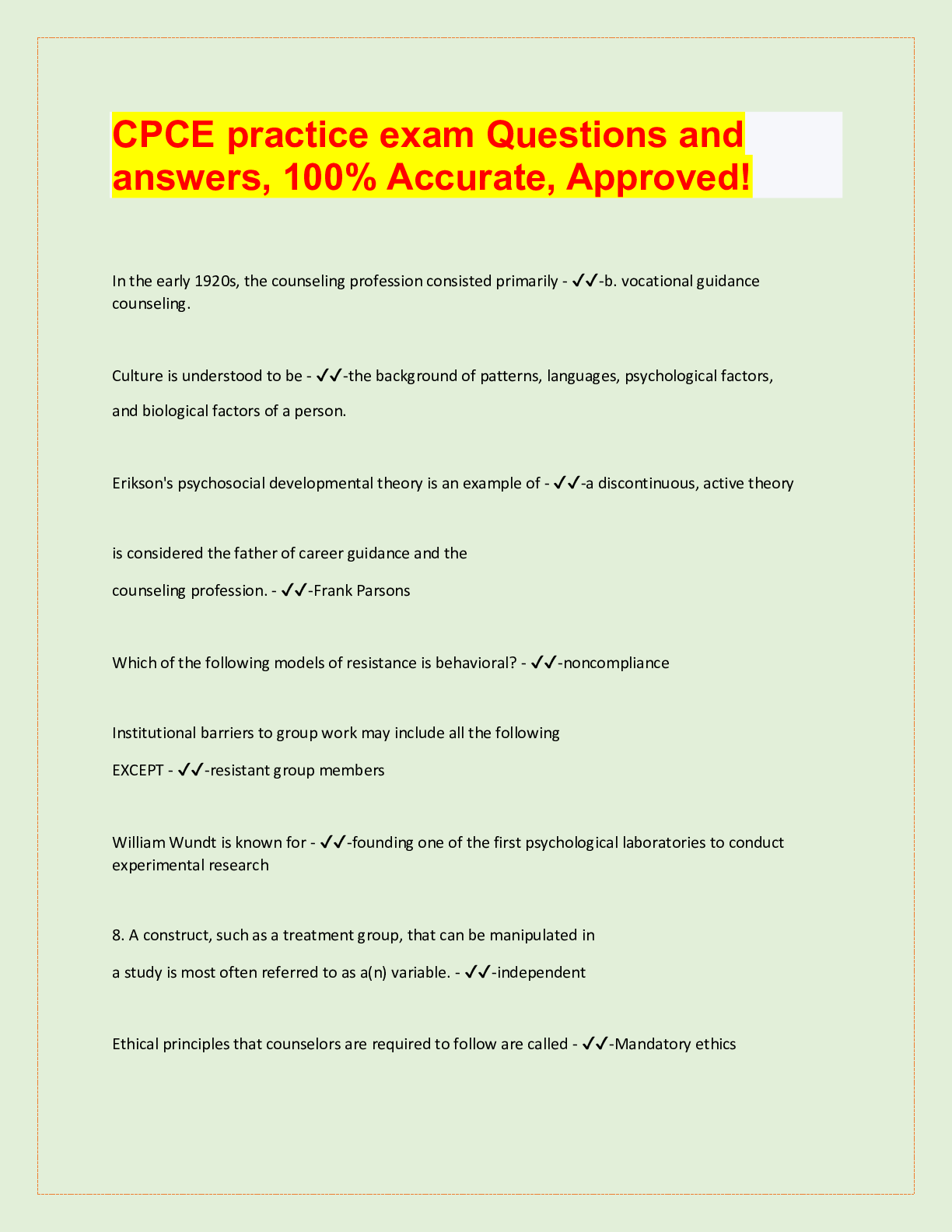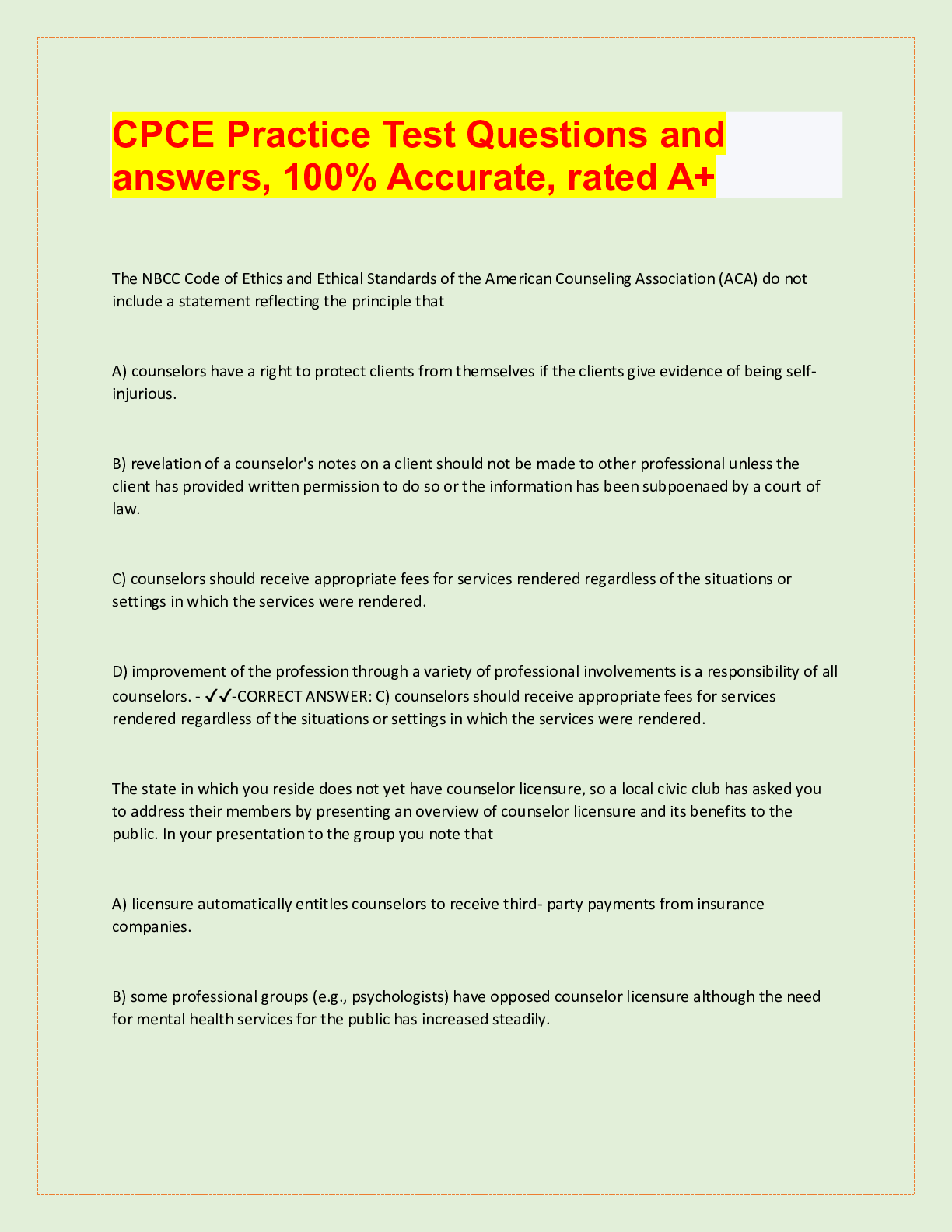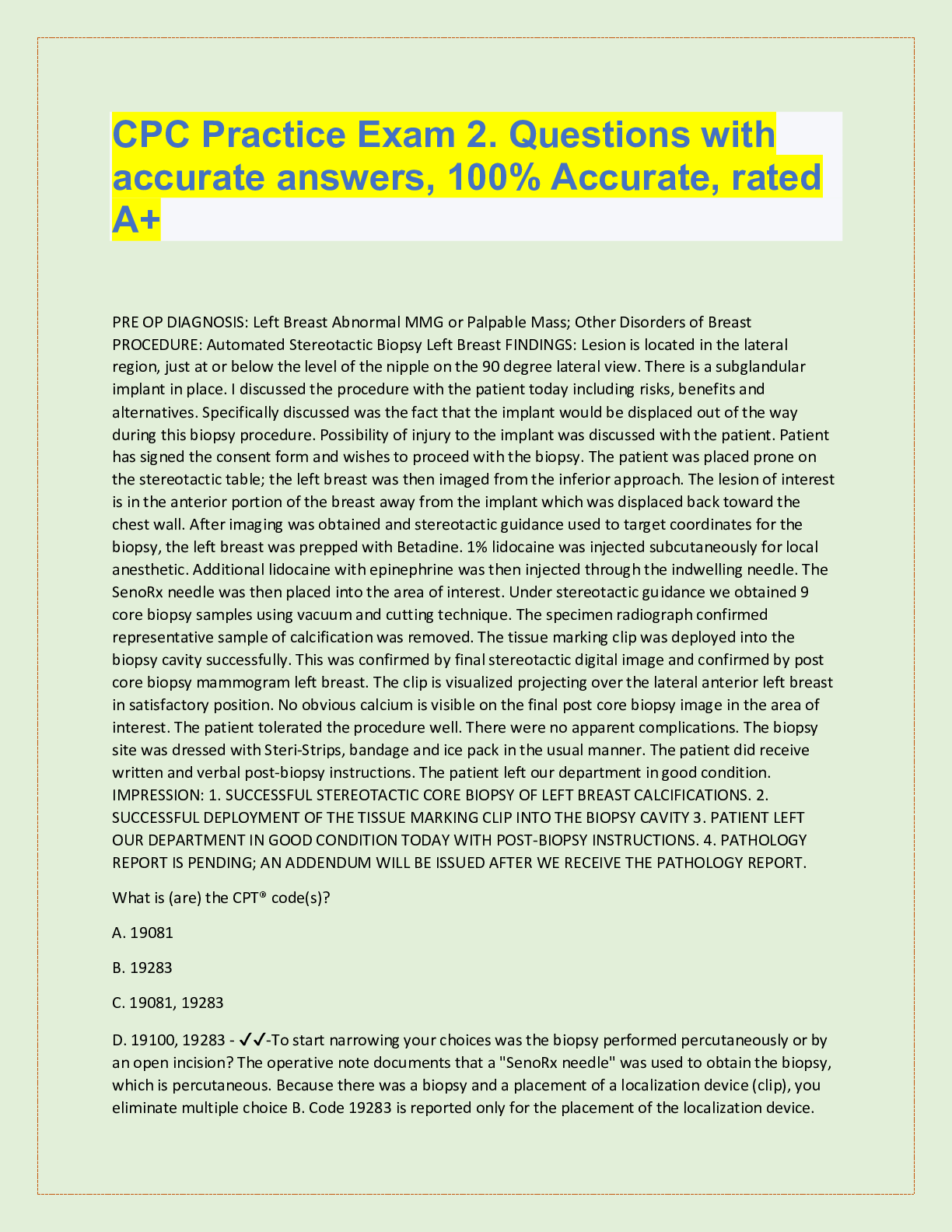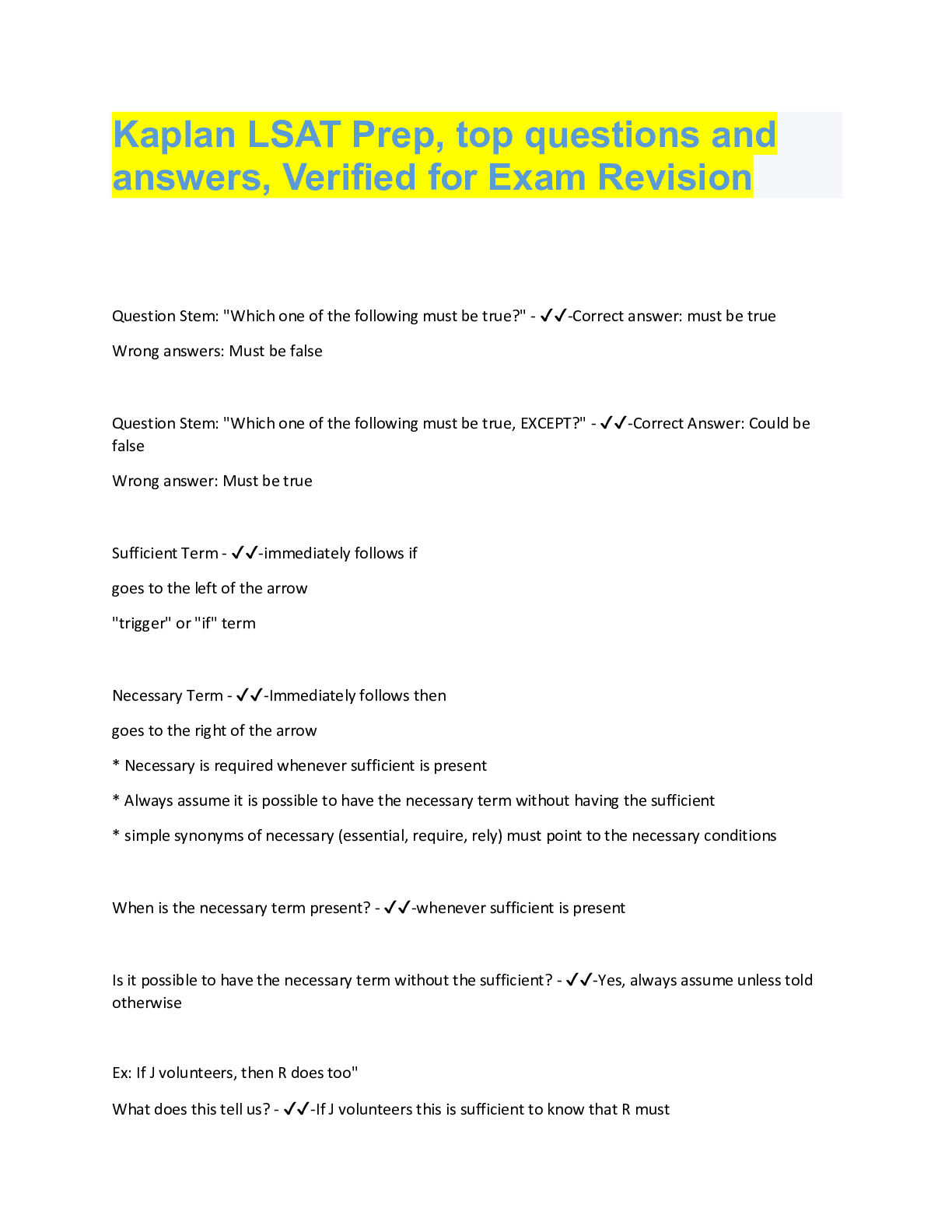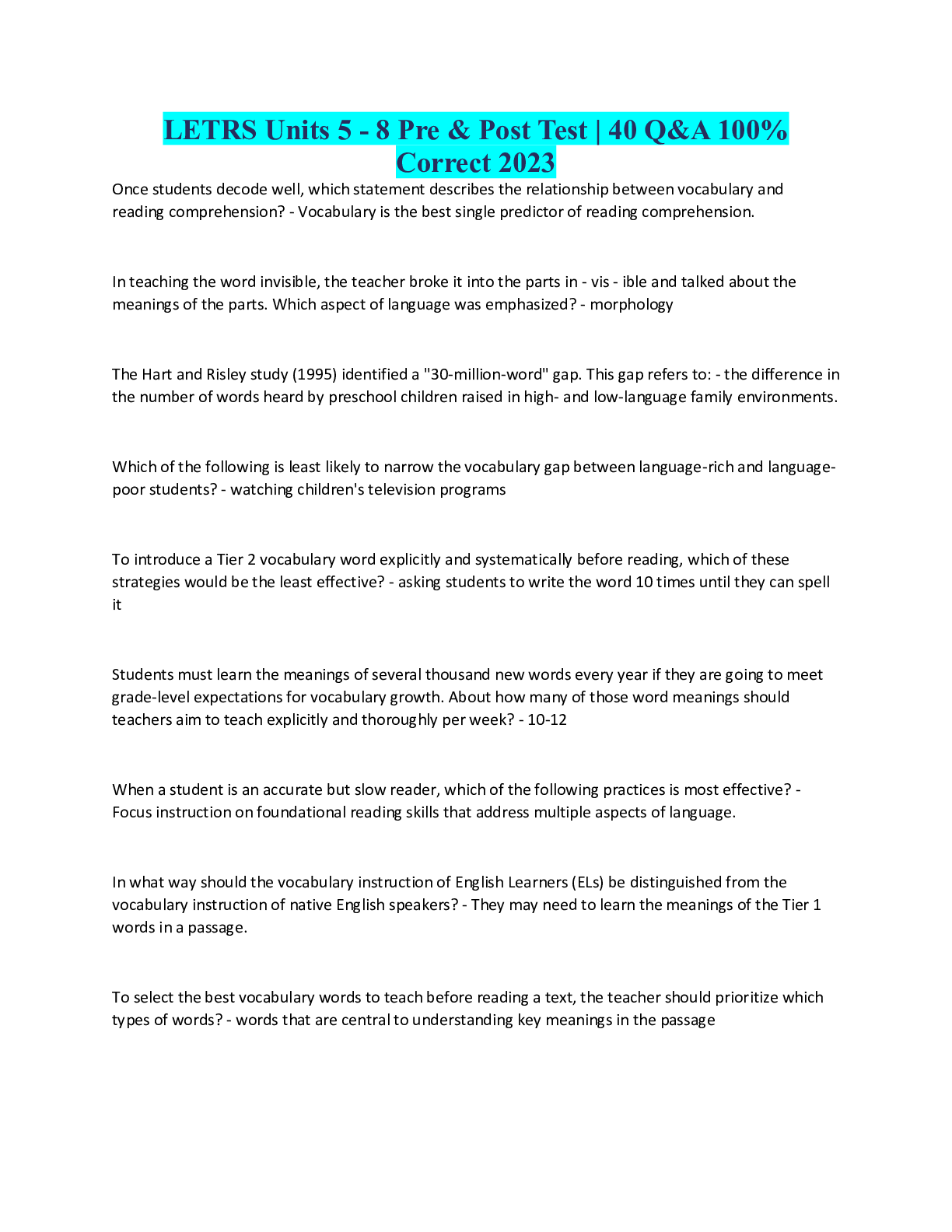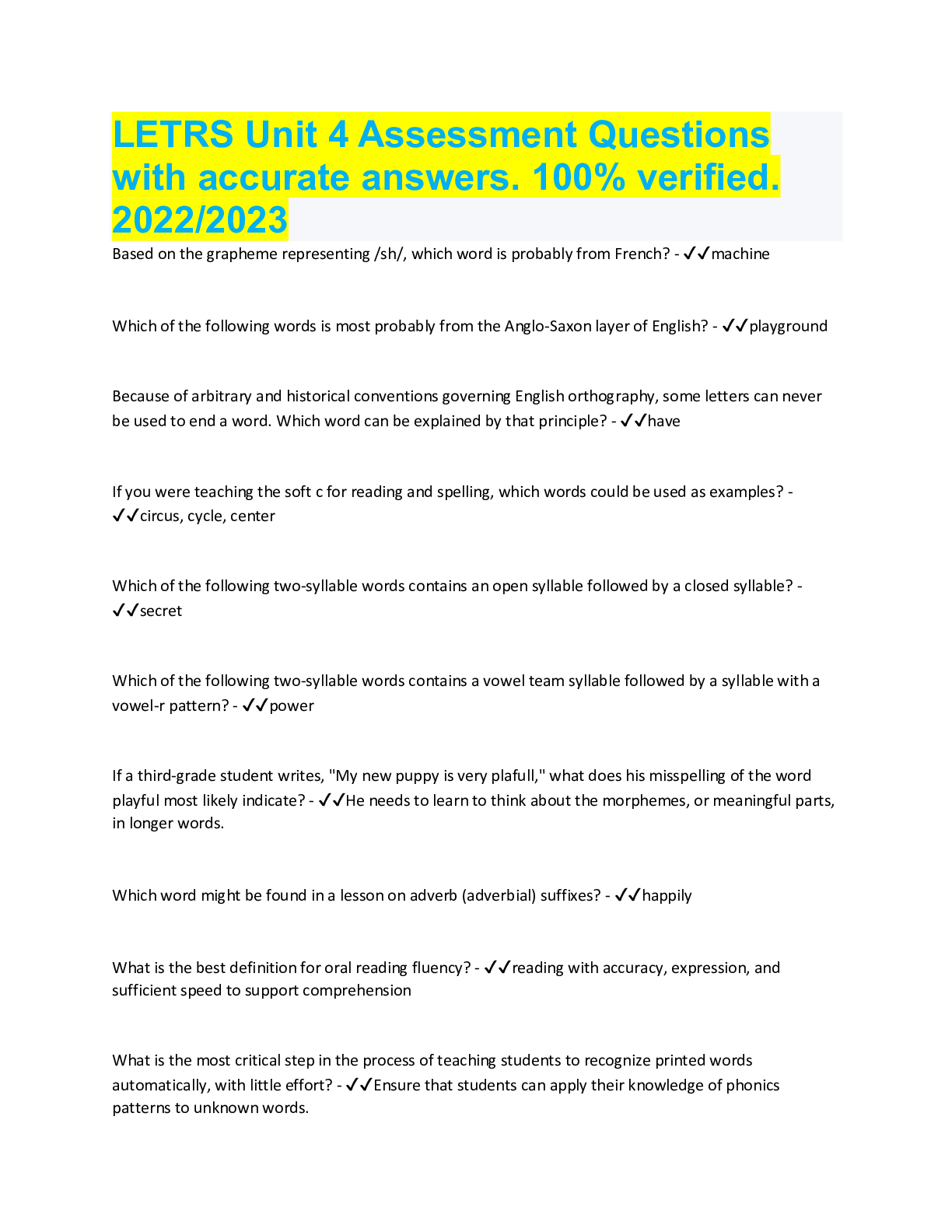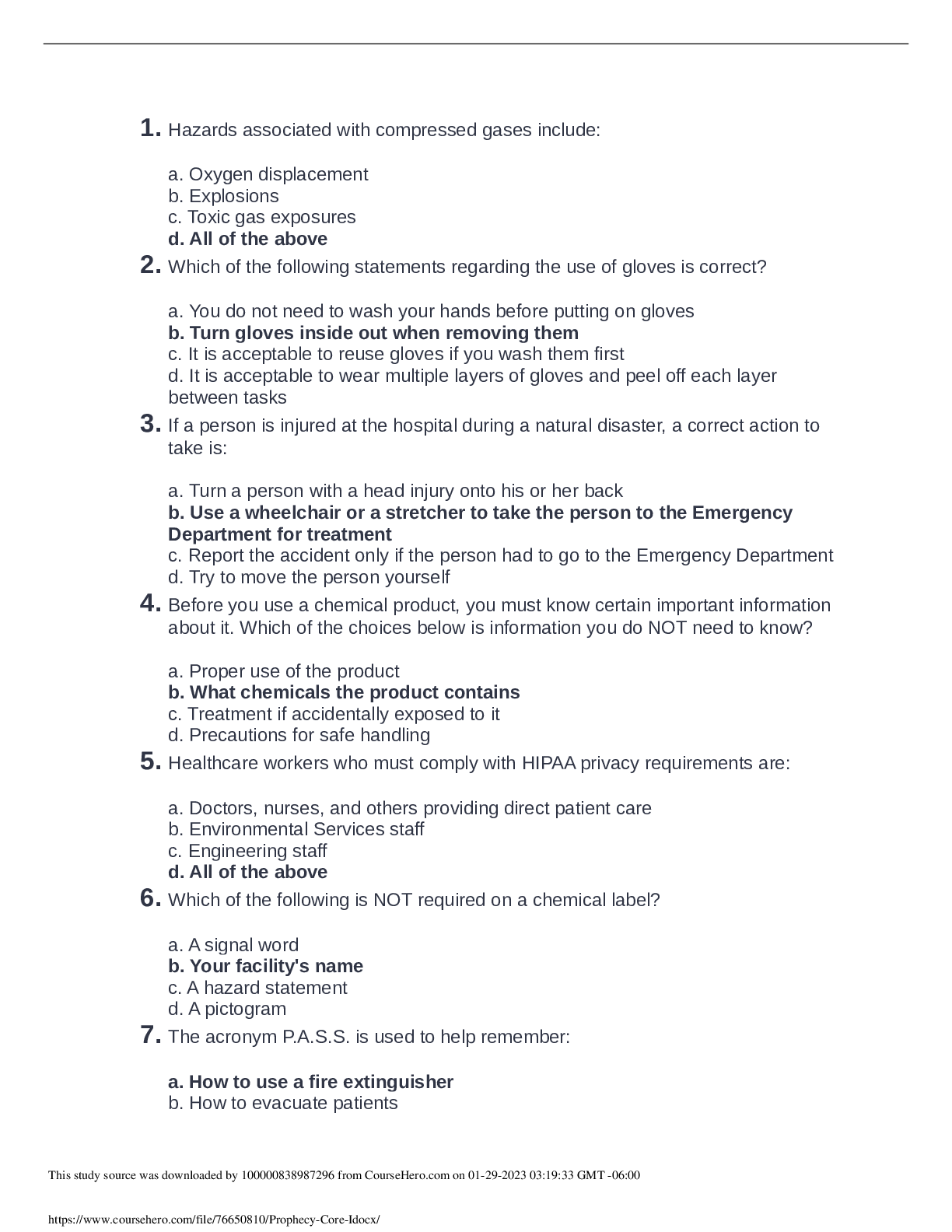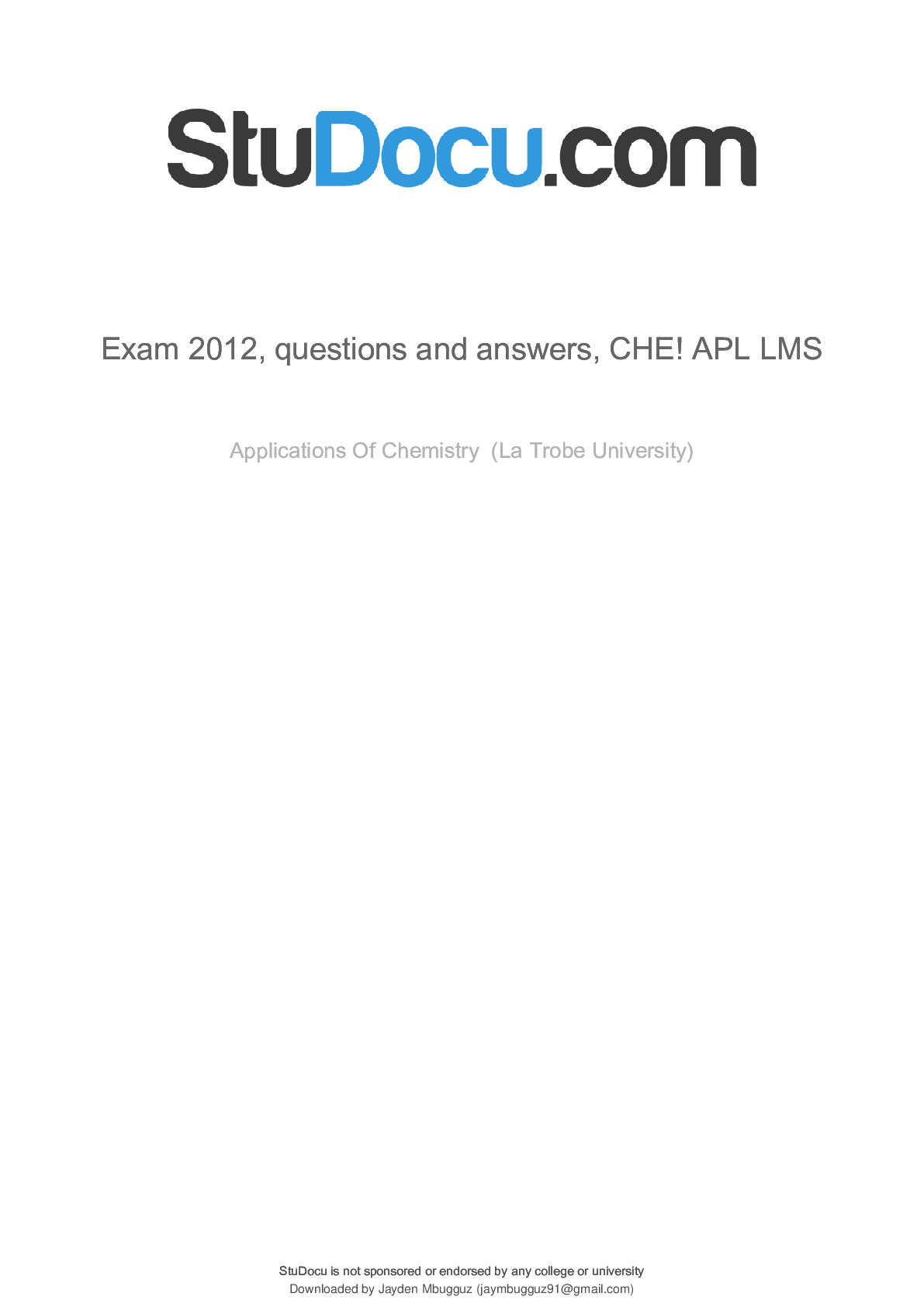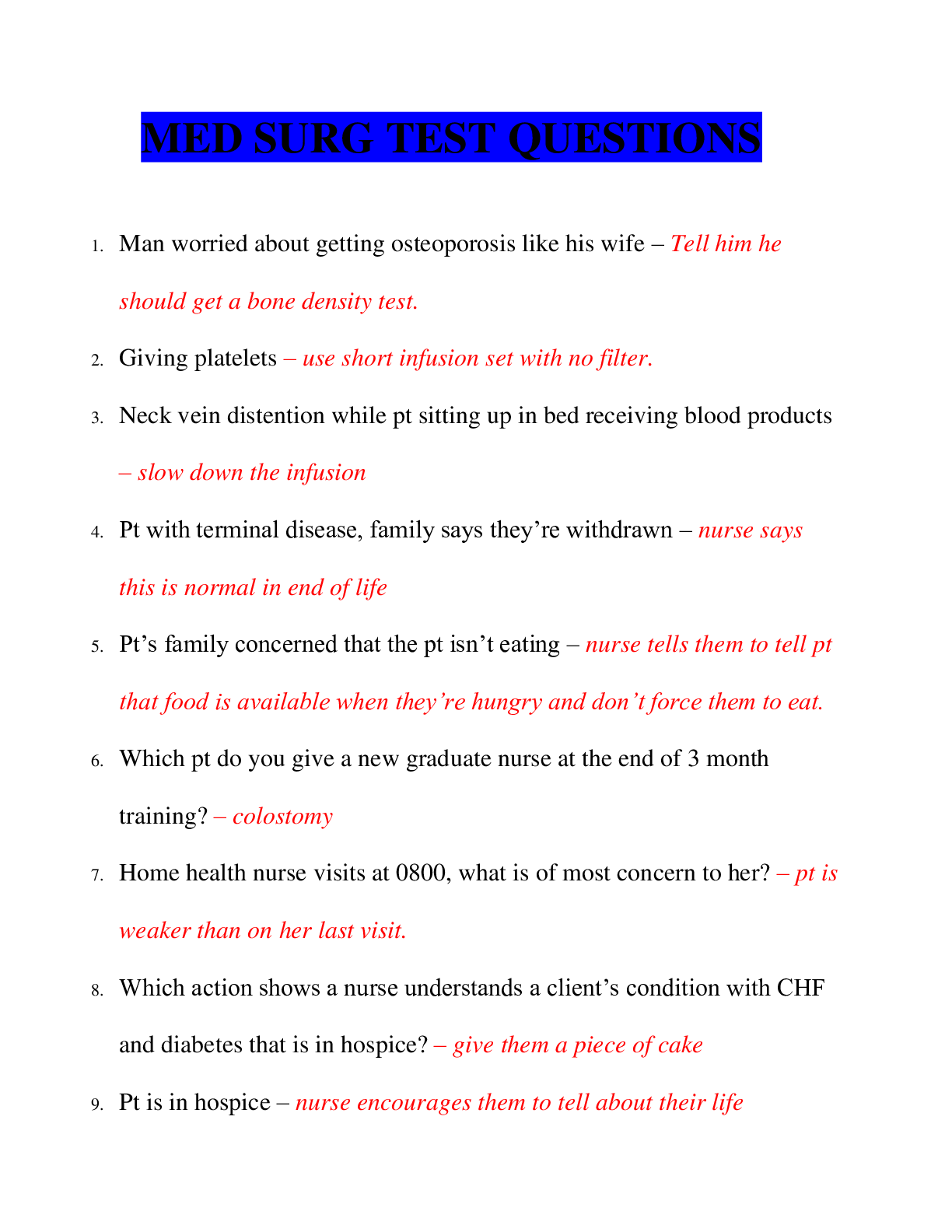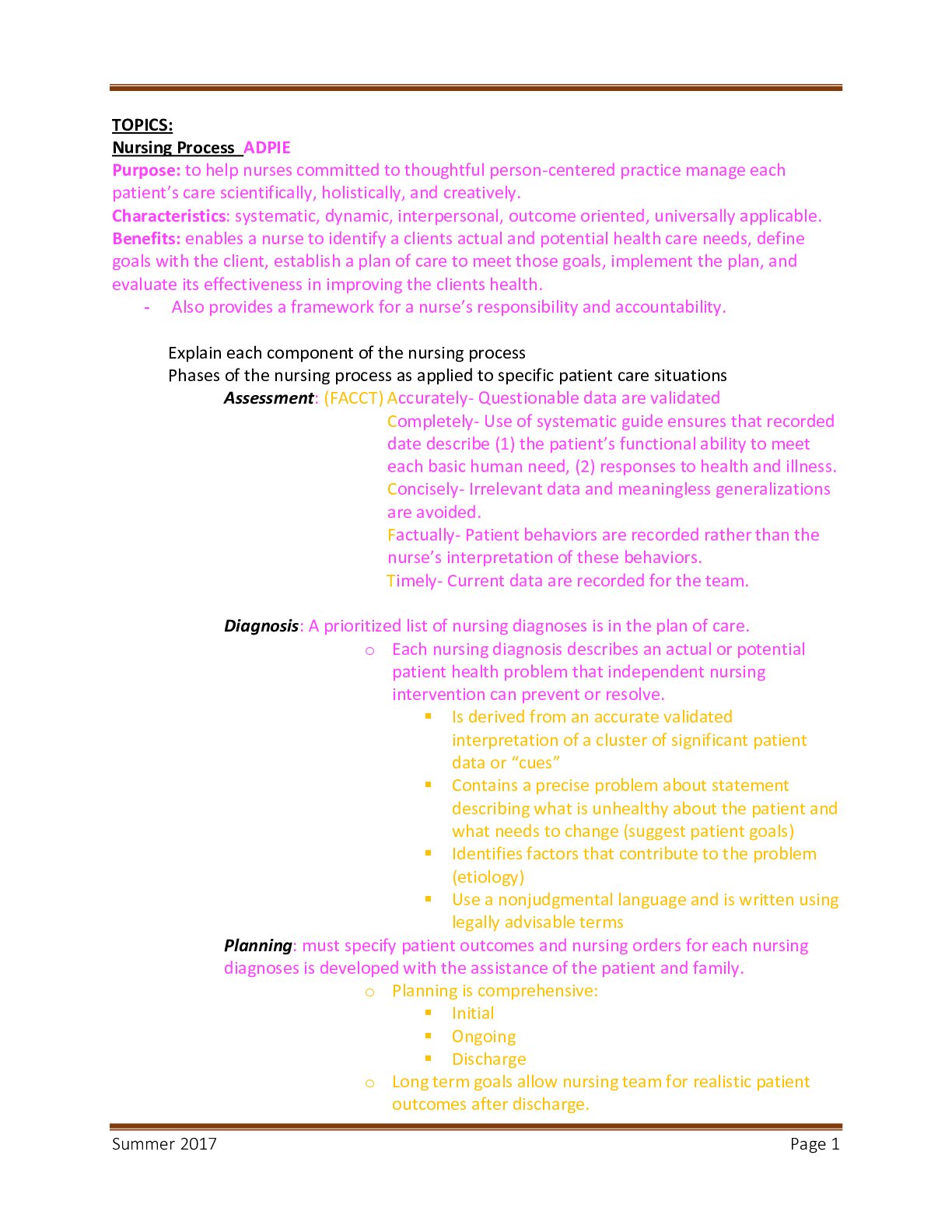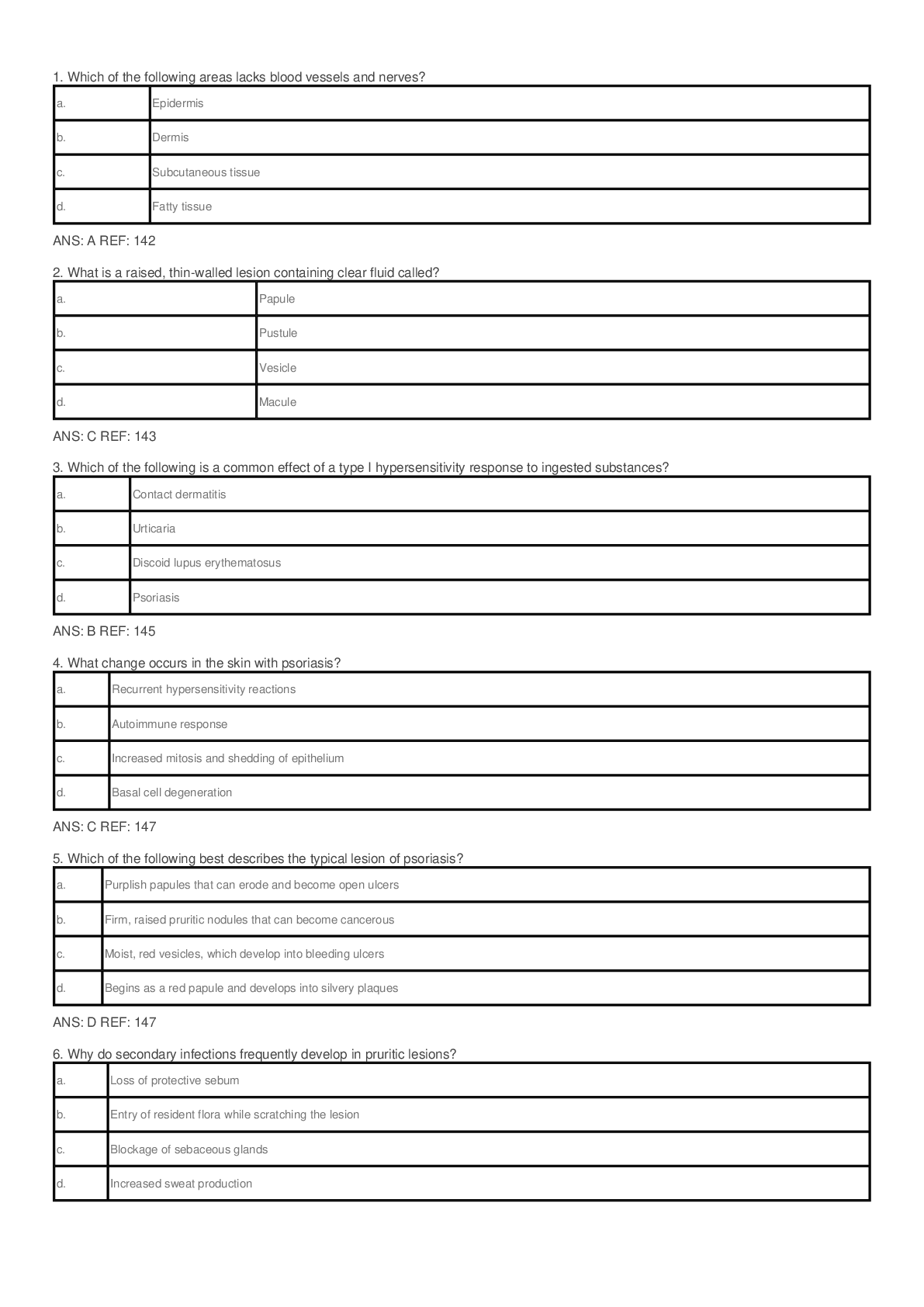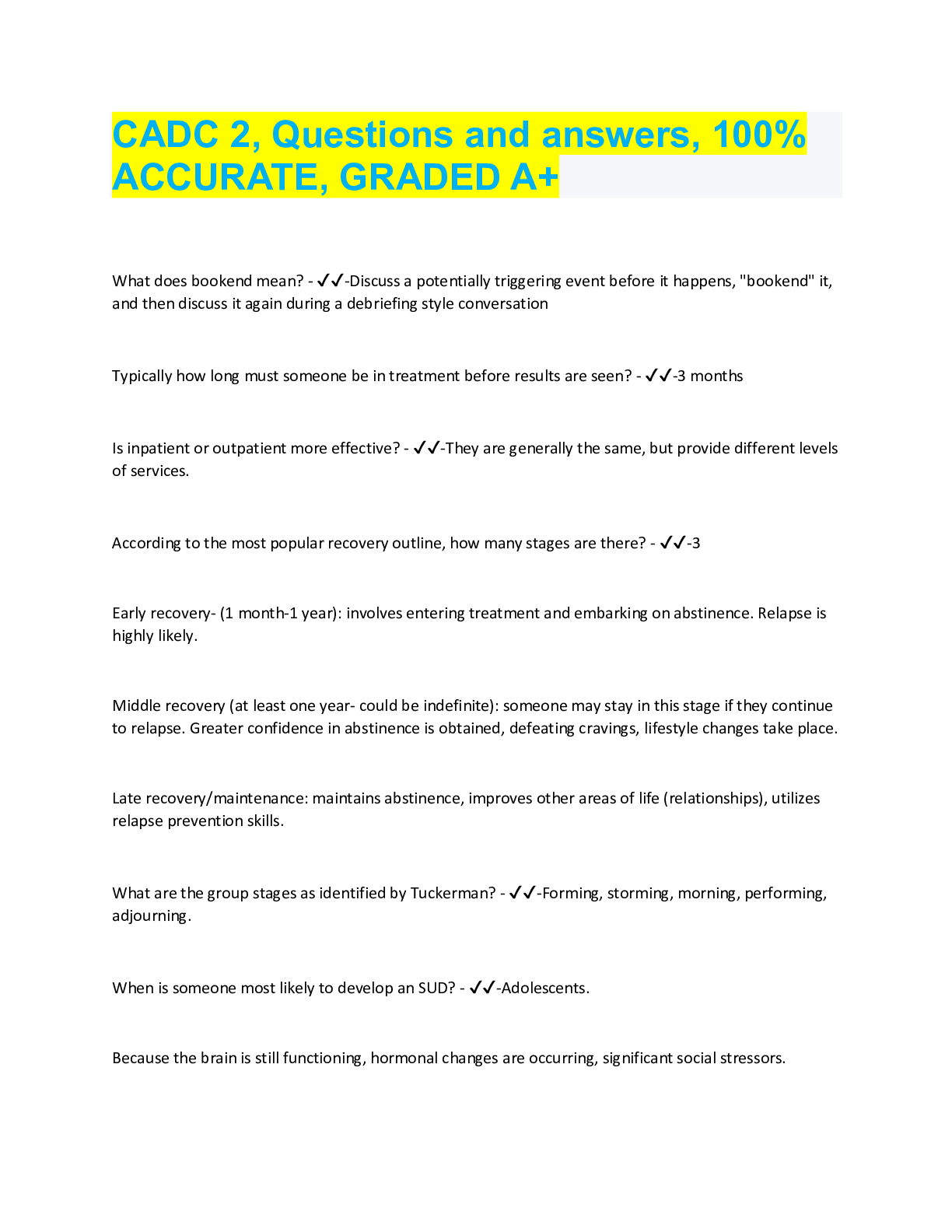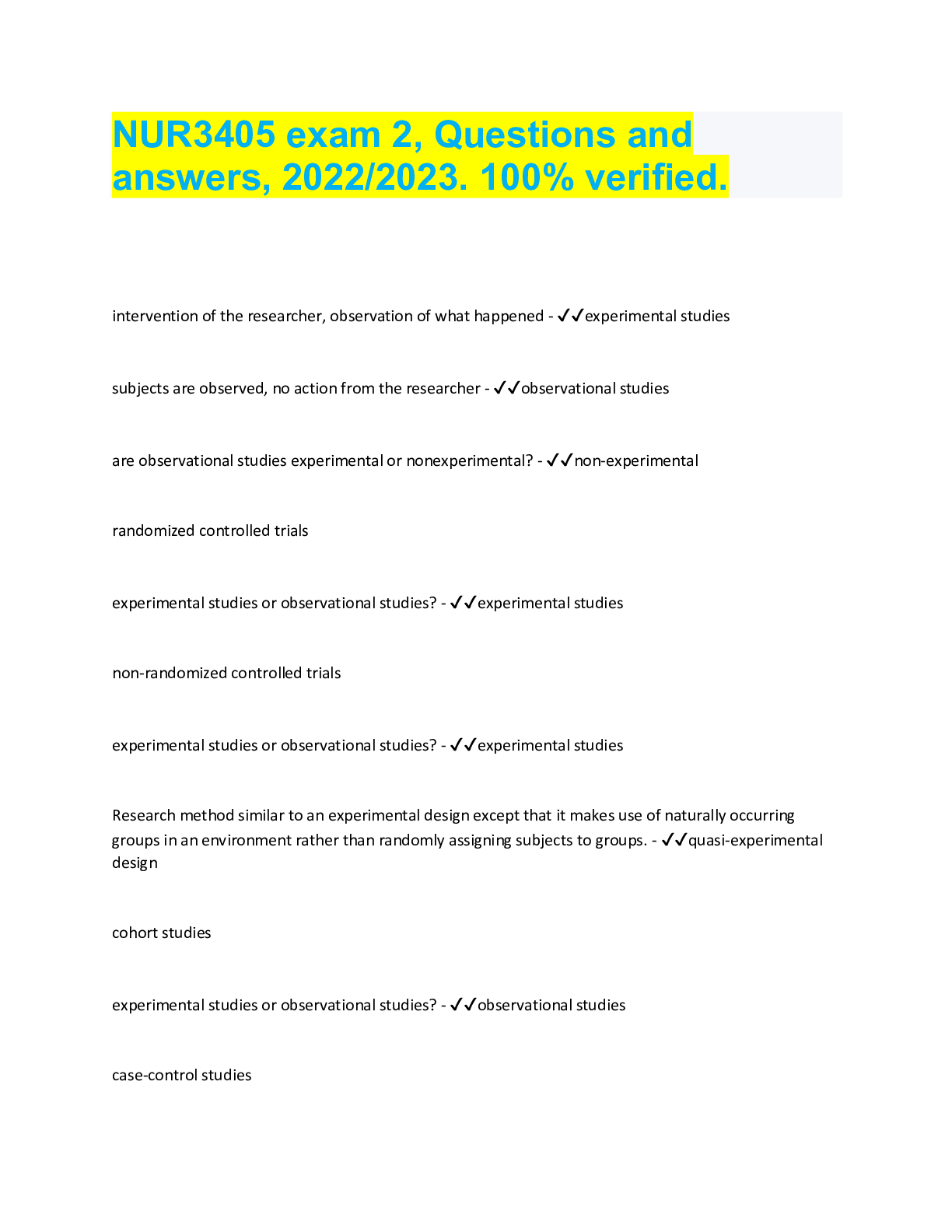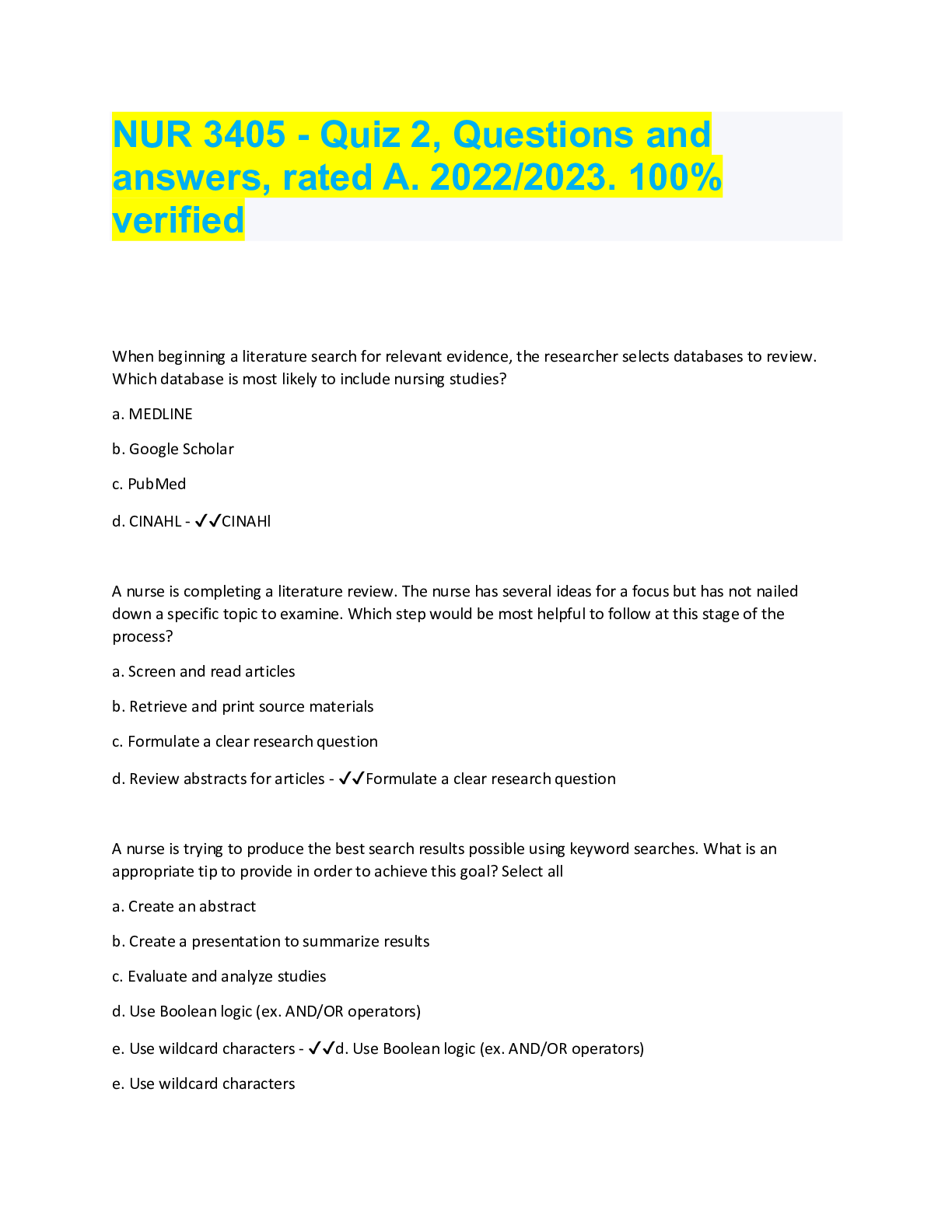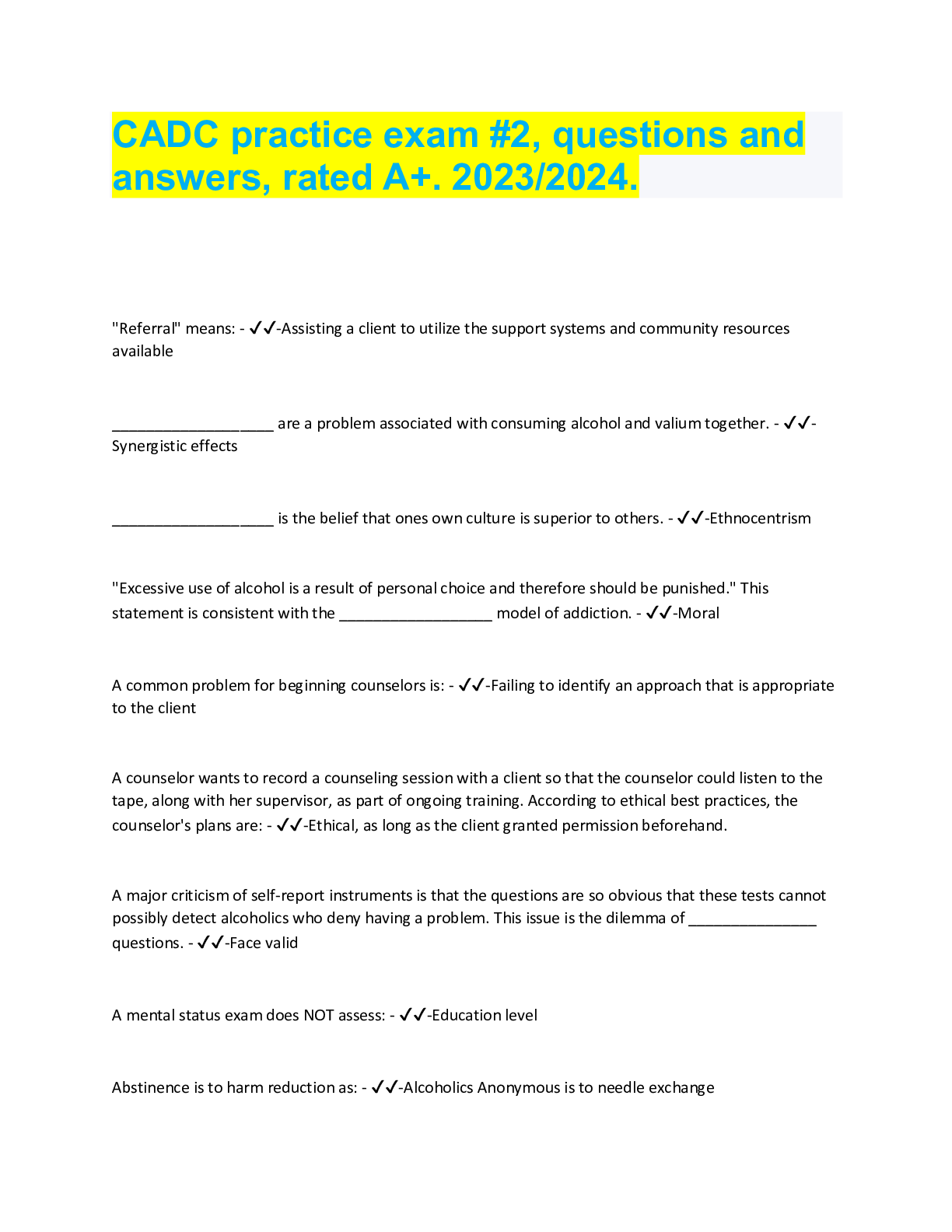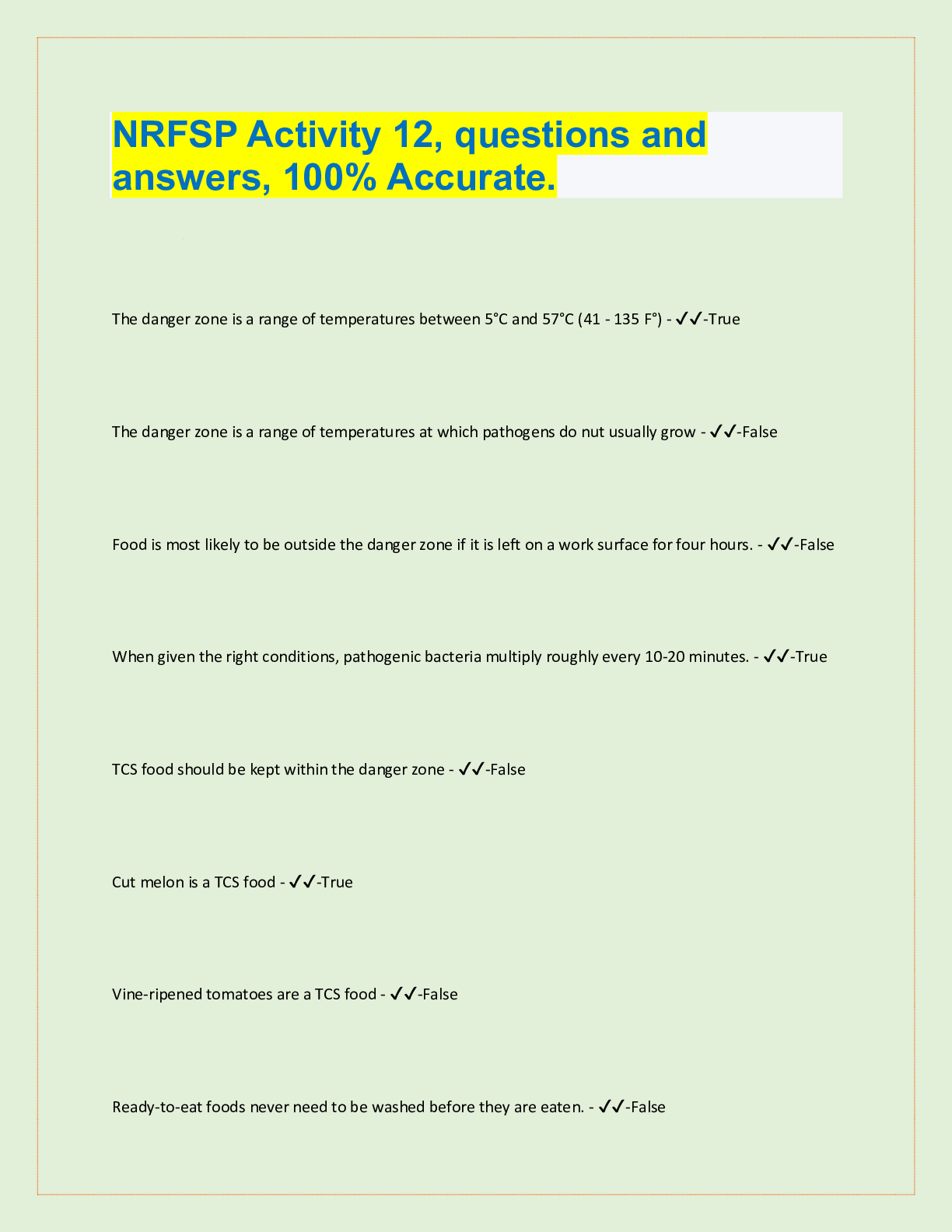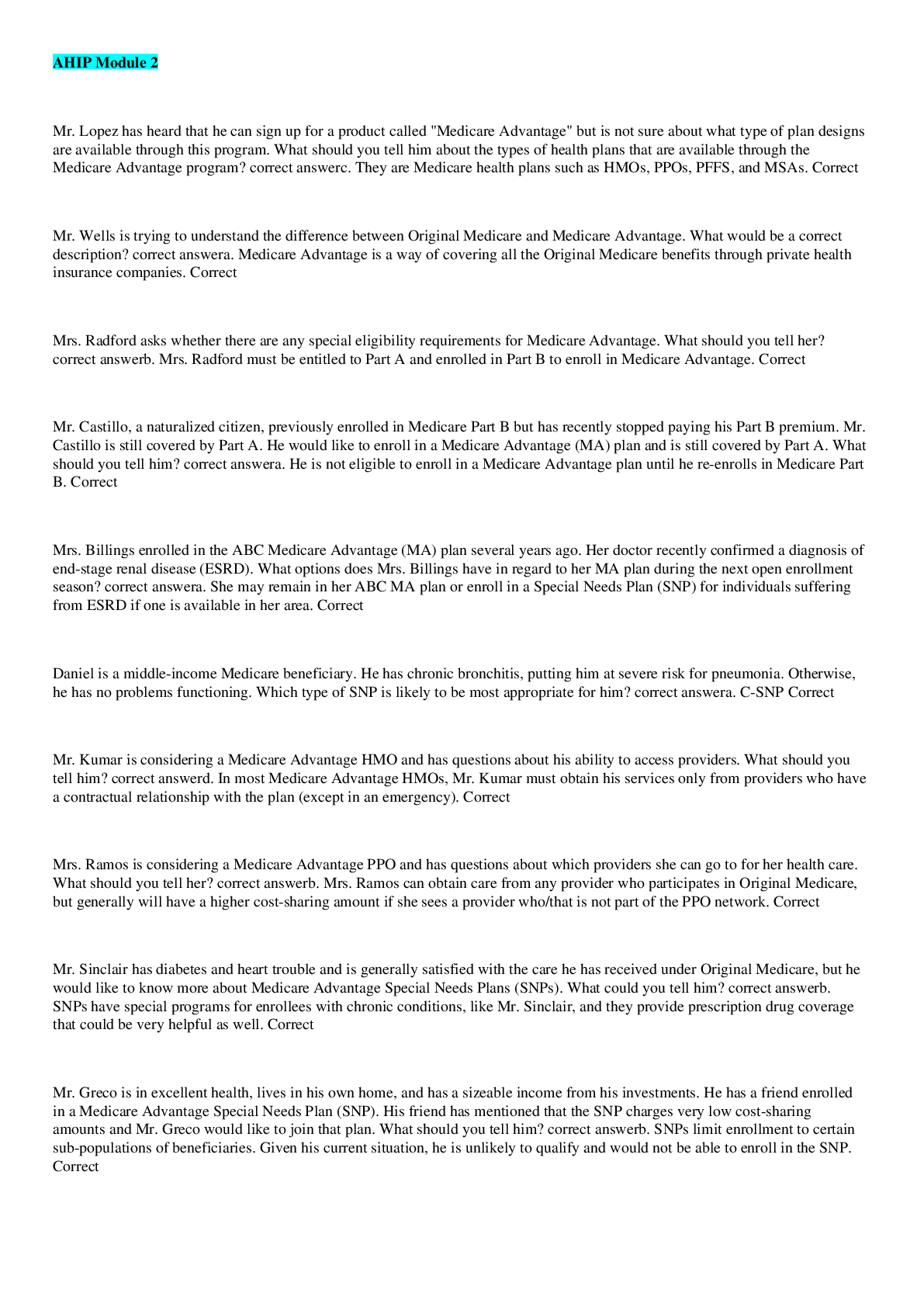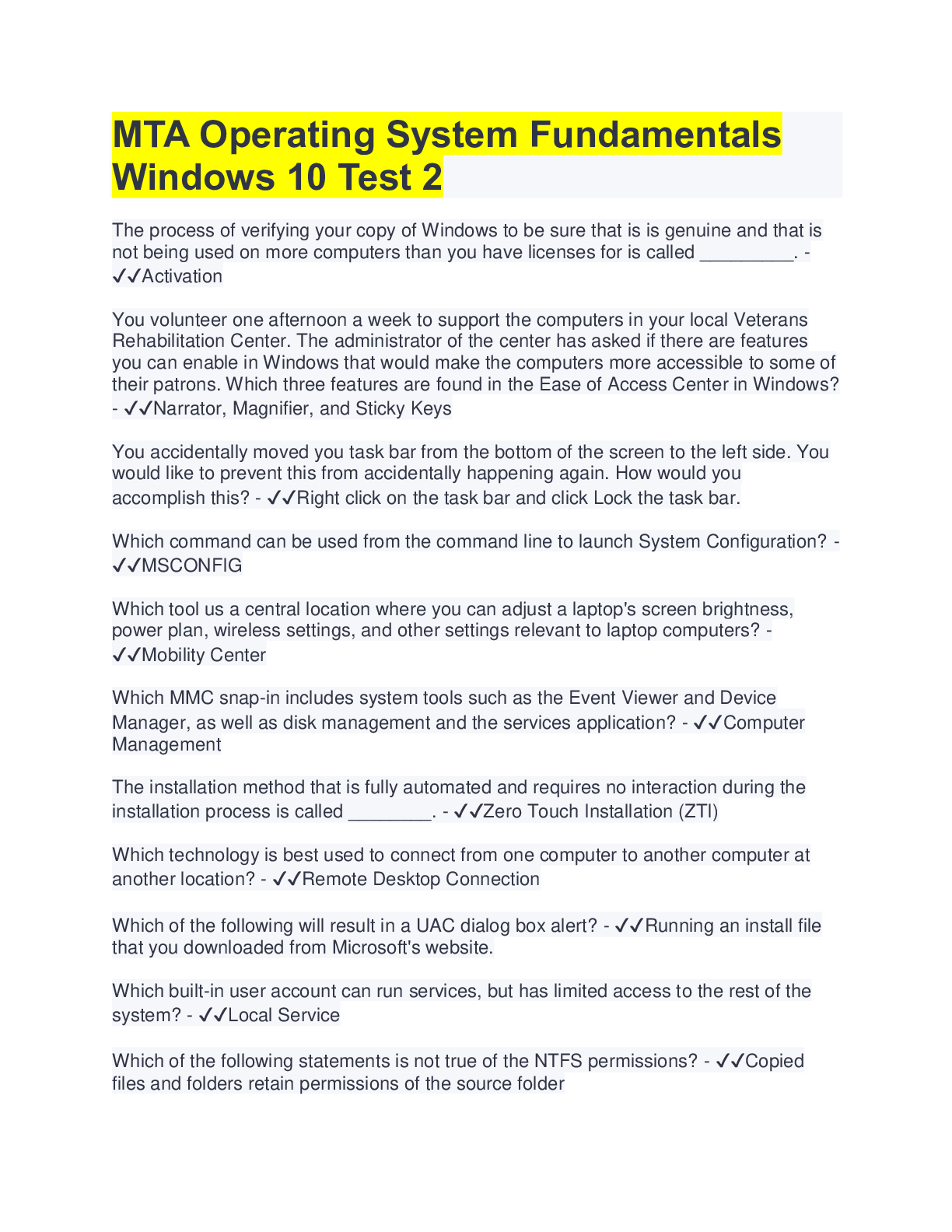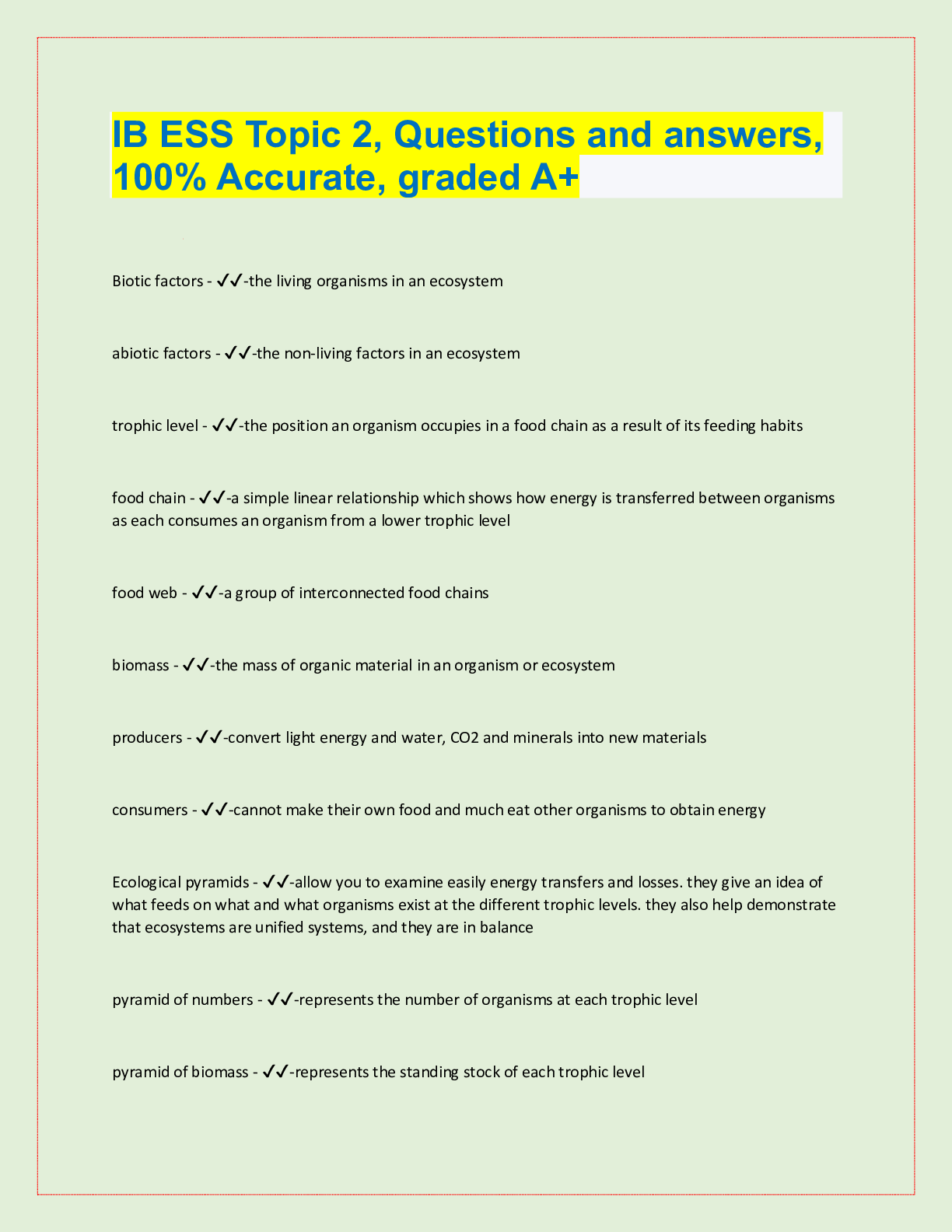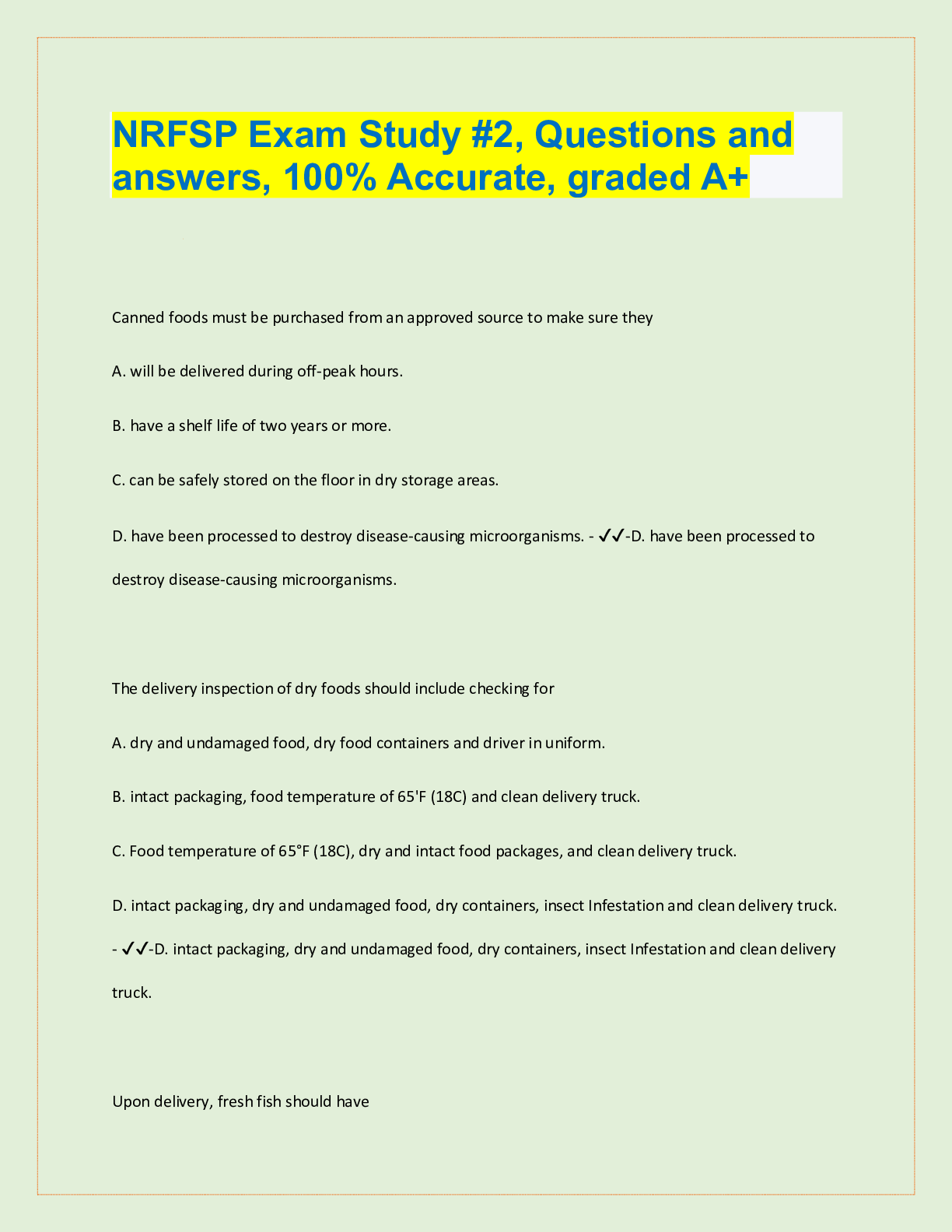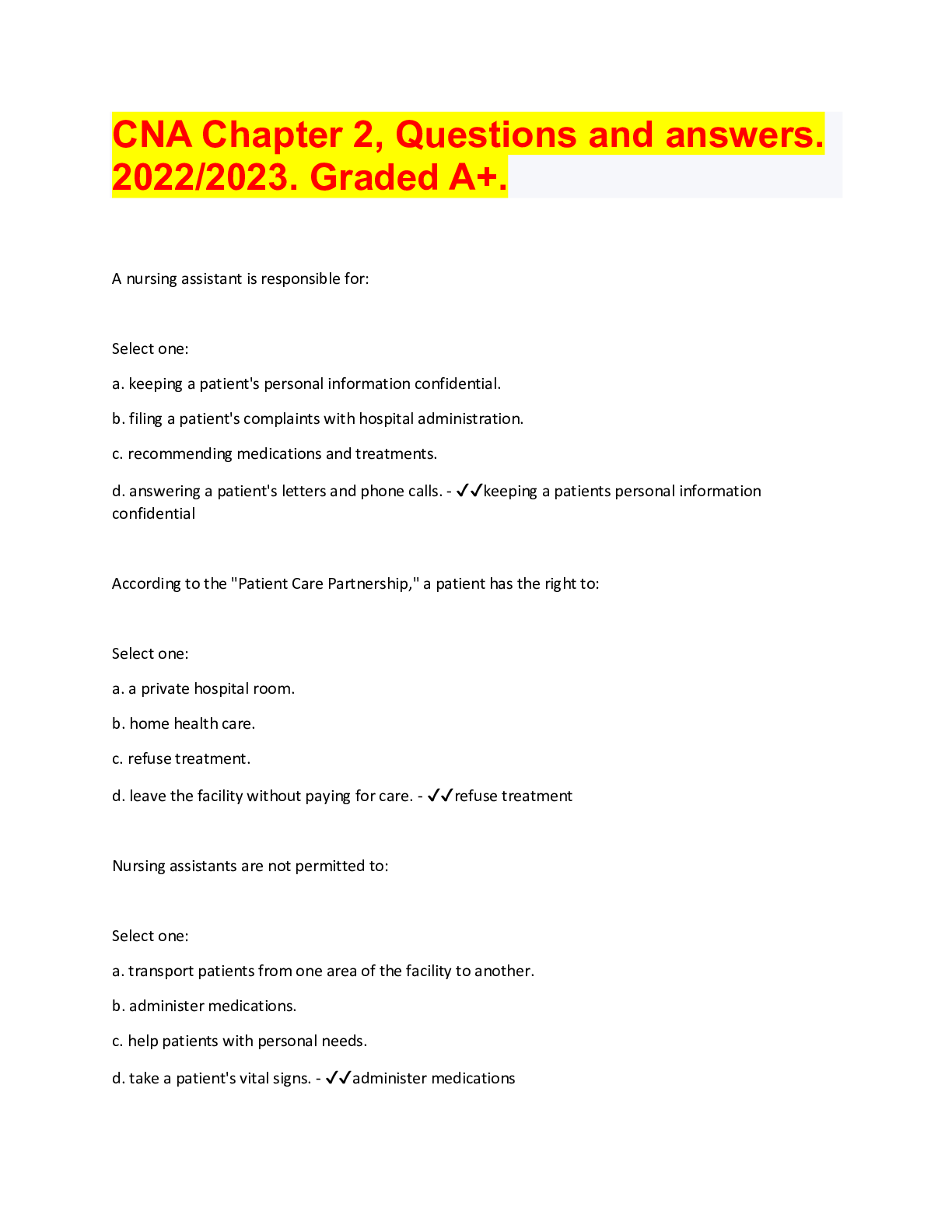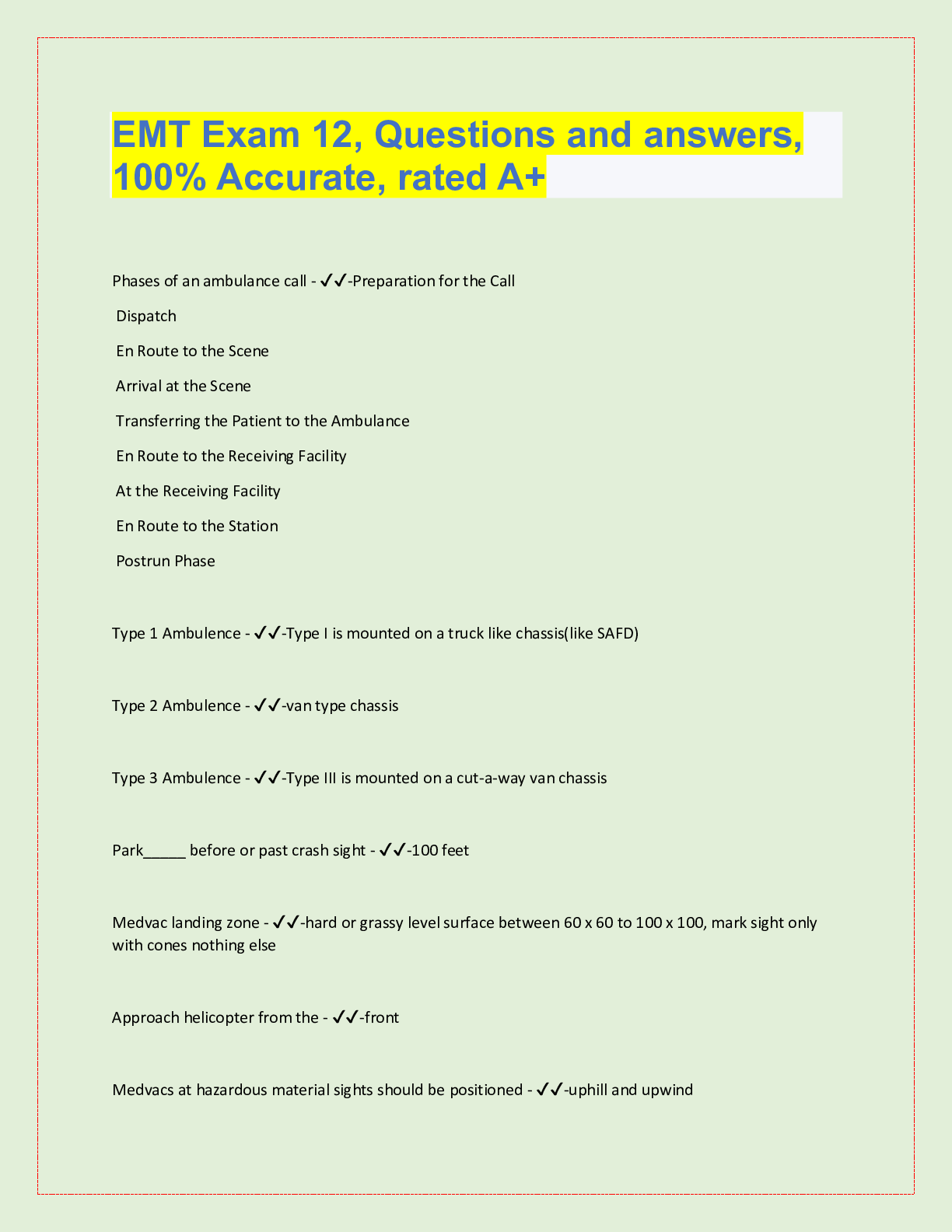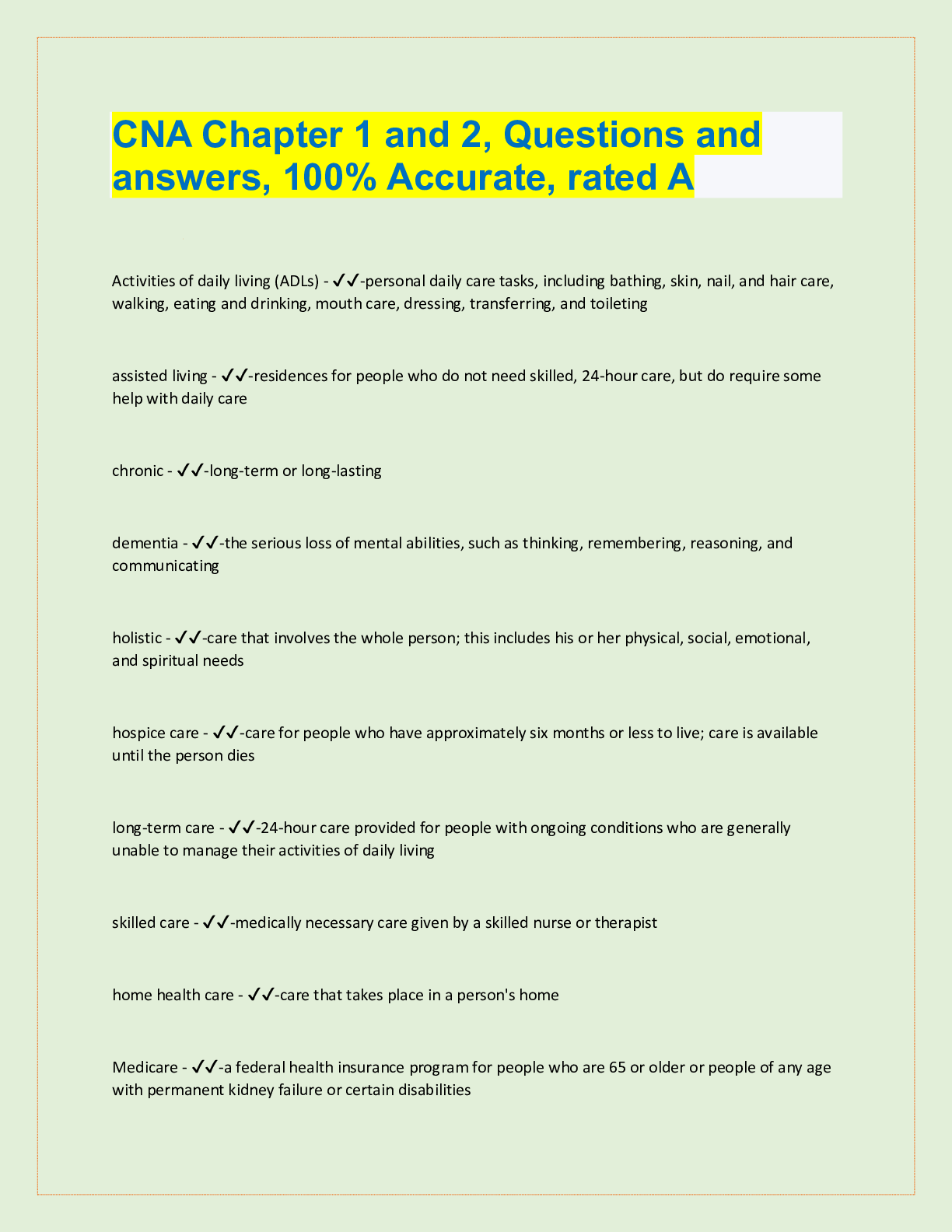Labour Law > QUESTIONS & ANSWERS > WGU C233-- Employment Law: Topics 1 & 2, questions and answers, verified. (All)
WGU C233-- Employment Law: Topics 1 & 2, questions and answers, verified.
Document Content and Description Below
WGU C233-- Employment Law: Topics 1 & 2, questions and answers, verified. Supremacy Clause - ✔✔-Mandates that the constitution, federal laws, treaties and federal regulations are the highest ... laws above the land and are priority over state laws. Stare Decisis - ✔✔-Doctrine of a court following the precedent of an earlier court. Judicial Review - ✔✔-Power of the Supreme Court to consider whether a law comports with the consititution. Respondeat Superior - ✔✔-Employer is only responsible for the employee action performed within the scope of employment. Scope of Employement - ✔✔-Involves employee conduct which is reasonably relative to a job description and foreseeable by the employer as part of that job description. What 3 tests are used to classify whether someone is an employee or an independent contractor? - ✔✔- Common Law Agency Test, Economic Realities Test, and The IRS 20-Factor Analysis. Common Law Agency Test - ✔✔-A worker is an employee if the employer maintains the right to control the method of work performed. For example, a worker classified as an independent contractor, but who must conform to strict standards of work hours, grooming, dress, billing processes, reporting procedures, and so on, is really an employee. Economic Realities Test - ✔✔-Looks past technical, common-law concepts of the master/servant relationship to determine whether the "economic reality" of a working relationship renders a worker substantially dependent on a given employer. The deciding point is whether the worker has little freedom to exit the relationship because he or she is economically dependent on the business to which he or she renders service. IRS 20-Factor Analysis - ✔✔-A guide to employers in determining if workers are indeed independent contractors. Most of these factors relate to control by the employer. Integrated Enterprise - ✔✔-One in which the operations of two or more employers are considered so intertwined that they can be considered a single employer for purposes of both federal statutory coverage and liability - an important consideration. Employment-at-will - ✔✔-A predominant rule governing employee-employer relationships that states an employer may terminate an employee at any time, for any legal reason, without incurring liability. What are 3 exceptions to employee-at-will doctrine that protects employees? - ✔✔-Public Policy, Implied Contract and Implied Covenant of Good Faith. Public Policy Exception - ✔✔-An exception to the employment-at-will that states an employer cannot terminate an employee for reasons that violate public policy. Examples include whistleblowing, calling OSHA, filing for workers' comp, etc. Implied Contract Exception - ✔✔-A legally binding agreement which is created, not through formal contract negotiation and documentation, but by the actions of the employer and the employee. Examples included oral assurances from the employer that as long as an employee does good work he or she will have a job or an employee handbook, policies, and procedures. Implied Covenant-of-Good-Faith Exception - ✔✔-An at-will doctrine exception that is only recognized by 13 states, holds that each party to the employment relationship makes an implied promise to treat each other in good faith and fairness, and when that covenant is broken, the employee has a cause of action for wrongful termination. Because of the strong presumptions of the at-will doctrine, these cases are hard to prove. Constructive Discharge - ✔✔-When an employer allows intolerable conditions of unfairness or mistreatment to exist at work to such a degree that no reasonable employee would feel he or she had any other option but to quit. For example: sexual or other harassment, failure to accommodate a disability, or excessive pressure to retire. Montana Wrongful Discharge from Employment Act - ✔✔-Prohibits termination for anything other than good cause once an employee has successfully passed a probationary period and allows for an employee to seek arbitration for a termination dispute. It also limits employee compensation to 4 years of compensation. Civil Rights Act of 1964---- Title VII - ✔✔-Protects all workers from discrimination (race, color, sex); however it does not currently list sexual affinity or orientation. It covers employers with 15 or more employees in a working day or 22 or more in a calendar week. It does not prevent employers of businesses operated in proximity to Native American reservations from preferring Indians over others for jobs. [Show More]
Last updated: 1 year ago
Preview 1 out of 5 pages
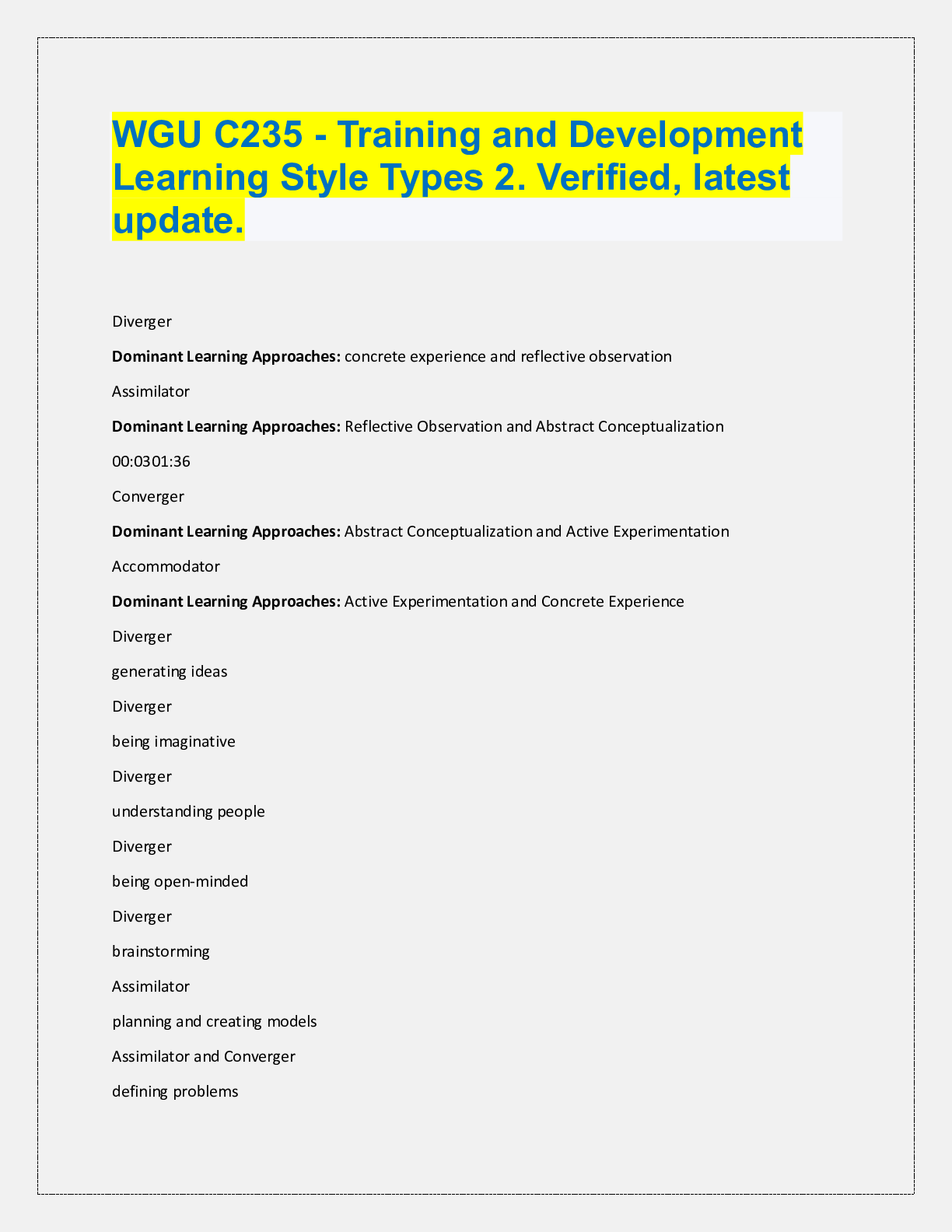
Also available in bundle (1)
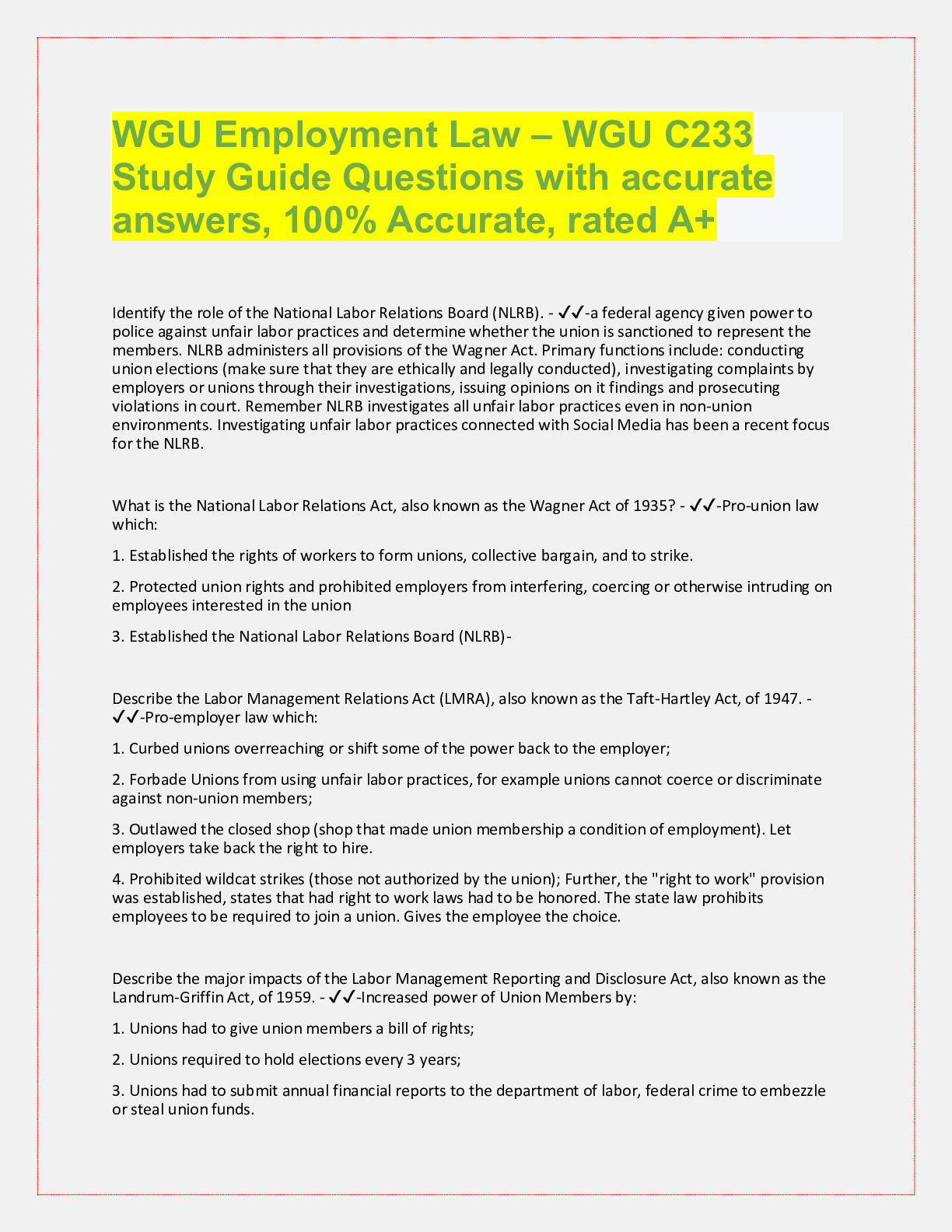
WGU C233 EXAM BUNDLE, VERIFIED
WGU C233 Employment Law, Exam Questions with accurate answers, rated A+. 39 VERSIONS, APPROVED PASS RATE
By Topmark 1 year ago
$35
32
Reviews( 0 )
Document information
Connected school, study & course
About the document
Uploaded On
Mar 13, 2023
Number of pages
5
Written in
Additional information
This document has been written for:
Uploaded
Mar 13, 2023
Downloads
0
Views
52

